
Sign in
Don't have an account with us? Sign up using the form below and get some free bonuses!

Trigger warning.
I'm not equipped for this.
My daughter and I were at the playground last Monday. We'd been on the swings together, then running around chasing dreams, or fairies, or whatever it was she said we were pursuing.
We climbed a hill that had a giant concrete sundial at the top and were feeling the warm sunshine on our faces. She put her arm around me; I put mine around her, in return.
I felt her drift backwards, which I presumed was simply her pulling away from me, as kids do.
Then, I heard something smack down on the concrete -- and turned around to see my child on the ground.
Unconscious. Eyes closed; mouth open. A cut on the back of her ear from where her head had made contact.
One minute she was there, smiling up at me...the next, she...wasn't.
I have zero medical training aside from a CPR class I took a few years ago. I remembered exactly NONE of it in this moment. Instead, I did what a body does when it's panicked -- I started screaming.
I don't know where my voice came from. I'm normally very soft-spoken. I usually freeze when met with a shock.
This time, I did not freeze; my body mobilized and vocalized every smothered shriek I've ever held back.
I tried to roll my child towards me so I could see her face better, then remembered we're not supposed to move unconscious people. Or are we? I didn't know.
Now, I froze. I started staring at something off in the distance. Everything got hazy and my brain "checked out." I felt dizzy. Where was I? What was happening?
By the grace of God, a few other parents were nearby, including one who was a nurse and another, a doctor.
Time passed. I have no idea how much.
What felt like hours (but was surely just minutes) later, the nurse announced that my child was "coming back" and starting to talk. I was still somewhere outside my body; and, it hurts me to say, not at all present with my ailing child, aside from standing next to her on the sundial.
The shock was too much for me. I became aware that my entire body was shaking as if there were an earthquake below my feet.
I shut down, incapable of helping my own child.
Am I a failure? I must be, if I wasn't the first reassuring face my child saw as she woke up.
Instead, my child awakened looking into a stranger’s eyes, not mine. She awakened in a stranger's arms, not mine. My eyes had been the first she ever looked into, moments after she was born. My arms had been the first arms to ever hold her.
I was not there this time for this crucial reawakening. I was nearby, but not there. My mind's eye was frozen with the image of her lying unconscious on the concrete, even though she was now ready to try standing up.
Still in a daze, I managed -- with help -- to get us down the hill and into my car. I immediately took my child to her pediatrician, who confirmed that nothing appeared to be wrong with her. It was a "fluke," she said.
Oh, okay. Nothing's wrong. Where do I find peace with this?
The rest of the day, I kept my child on my lap, reading to her, stroking her hair and nuzzling my face into it like I did when she was a baby.
I lost another baby once. I do not want to lose THIS "baby," who's an otherwise healthy 8-year-old. Our babies are always our babies. I am not prepared to lose...another. Not THIS child.
I poured love into her sweet soul in every way I knew how that day. As soon as I could, I showed up. I put down my phone, my agenda, and everything I was "supposed to" accomplish.
I was just WITH her. Terrified and comforted at the same time, feeling my baby slip through my fingers -- and then holding her back there again.
It all knocked the wind out of me.
The next morning, after a night of extremely broken sleep (for me), my daughter -- still pale -- looked up at me and said out of the blue, "Mama, I'm not afraid of dying."
"What?" I inquired, feeling tears rush to my eyes. No one had spoken to her about dying.
"Heaven is going to be perfect. Can you imagine?" She paused, then continued, "You know what, though? Even if Heaven is just like here -- exactly like here -- that's fine with me, too, because here is pretty amazing."
And she leaned into me, hugged me tightly, and did not let go.
I am not equipped for this.
AND, if she views my showing up; the safety I offer her when I'm capable; my holding her and loving her as being a version of Heaven that she'd accept for eternity -- then there's no failure here.
I will hold her every day of my life. May I keep showing up, and I will never let her slip through my fingers again.
We've all seen the happy child who leans into life, smiling all the way, seemingly without a care in the world. How does this happen? Are they born this way, or can we teach kids ways to optimize their emotional well being?
Indeed, some children are born happier. Temperament, driven partially by genetic makeup, can make for an easygoing child. However, genetics account for only 20 - 60% of the child's temperament (source). This is good news, because it means good parents can influence their children's happiness for the better.
There are countless articles about how to raise a happy child, but I've boiled it down to just those practices that are proven to drive long-term happiness.

Scientists have shown that
"...brain levels of serotonin -- the 'happy hormone' -- are regulated by the amount of [healthy] bacteria in the gut during early life. The research shows that normal adult brain function depends on the presence of gut microbes during development..." (source)
and
"...A balanced diet, including fish, vegetables, cereals, fruits, and water can help our gut bacteria to be healthy. Healthy gut bacteria will have a positive effect on the brain and our moods. 'Happy gut bacteria' will help us to have 'happy brains'..." (source)
If you have a picky eater, this video may help.
Related book recommendations: Life Will Get Better: Simple Solutions for Parents of Children with Attention, Anxiety, Mood and Behavior Challenges and It's Not About the Broccoli (afflinks)
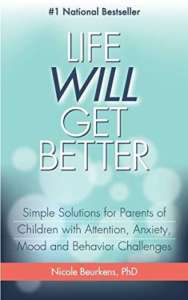
It's nearly impossible to have a happy child who's also an exhausted child.
"...sleep might just be the key to our happiness and peak performance. Nothing could be more true for children. Kids need a lot of sleep to be happy. Unfortunately, studies show that kids are getting significantly less sleep per night than they did in previous generations. This is of no small consequence." (source)
There's plenty of scientifically backed research about the effects of lack of sleep: children learn less, they feel worse, and they -- no surprise here -- behave worse when they're tired.
Most children need:
Recommended mini-courses: How to help babies sleep when you don't want to cry-it-out and The Peaceful Parenting Approach When a Child Won't Stay in Their Bed Recommended book: No-Cry Sleep Solution

One life changing approach is to shift from doing what makes us happy to what makes our kids happy. Even with the best intentions, we often (wrongly) assume it's the same thing! Do you know your child's love language?
Of course, we matter, too, and it's not all about the kids. The key is to help our kids feel "seen" in their own unique ways.
Child loves painting? Paint with them. Reading? Read with them. Do their thing alongside them, even for 10 minutes.
In other words, slowing down to see what our child loves is wonderfully connecting in parenting. Feeling "seen" is one of the "4 Ss" of secure attachment.
Sources and recommended reading: The Power of Showing Up and 5 Love Languages of Children: The Secret to Loving Children Effectively
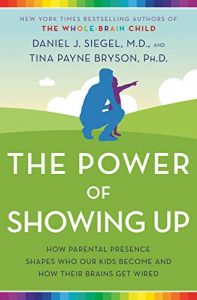
One thing I love about daily lessons in gratitude is that neither parents nor children need to invest much time in them for them to be highly effective. Happiness studies repeatedly show that children and adults who practice gratitude are happier:
"...Studies have found that giving thanks and counting blessings can help people sleep better, lower stress and improve interpersonal relationships...a study found that keeping a gratitude journal decreased materialism and bolstered generosity among adolescents..." (source)
Besides having a gratitude journal for older children, there are other activities you can start with children at an early age to help raise happier kids.
One simple activity is every night at dinner, each family member shares three things for which they're thankful. It's quick and easy, and it helps keep gratitude top of mind.
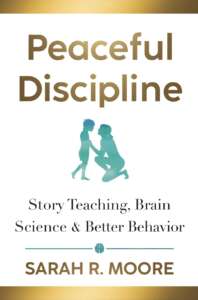
Play naturally lowers children's stress levels and promotes joy. Plus, spending time playing is essential for their development.
"...it contributes to the cognitive, physical, social, and emotional well-being of children and youth...Play is so important to optimal child development that it has been recognized by the United Nations High Commission for Human Rights as a right of every child.." (source)
Lest parents think nothing "productive" comes from playtime, countless articles from the fields of neuroscience and child development prove otherwise:
"...75 percent of the brain develops after a baby is born, in the years between birth and the early 20s. Childhood play stimulates the brain to make connections between nerve cells. This is what helps a child develop both gross motor skills (walking, running, jumping, coordination) and fine motor skills (writing, manipulating small tools, detailed hand work). Play during the teen years and into adulthood helps the brain develop even more connectivity, especially in the frontal lobe which is the center for planning and making good decisions..." (source)
Children literally need a tremendous amount of play for key features of their brains to grow properly. These are the very key features that support the "productivity" and good decision-making skills we want them to embody as they grow older. Further, it's great for their emerging social skills, which contributes to better relationships down the road.
Free, unstructured play is never a waste of time. It's one of the easy-to-understand lessons that requires exactly zero prep or planning on the adult's part; children are naturally born to play.
Children will need play as they grow into adulthood, as well. Cutting-edge research proves that adults need their own versions of play to reduce stress levels, improve brain function, boost activity levels, and improve relationships (source).
How else can we raise a happy child? Kids develop life changing "happiness habits" through daily lessons in connecting with others.
Groundbreaking research shows that happy children have good friends who are a positive influence on their health and well being.
..."Social relationships have been widely recognized as protective factors for psychological well-being and physical health..." (source: Human Improvement Project)
Even more critical than friendships, however, is a loving and nurturing family life. Having a close family life is linked to better relationships for the child throughout their entire lifespan.
View behavior problems as opportunities to connect. Be a peaceful parent (here's help with that).
Recommended resource to guide parents on how to stay at the forefront of their kids' relationships: Hold Onto Your Kids by Dr. Gordon Neufield and Gabor Maté, M.D.
Happy kids know what a joyful life looks like because they've witnessed it firsthand. A happy child often has happy parents.
So, if we want to raise happy kids, that means we need to be happy, too. To be clear, this isn't to say we should "fake it" if we're unhappy.
What it may mean, however, is that if we're unhappy, we may need to do something about it. What would bring you more joy? Could you
Many parents feel they're unable, or sometimes unwilling, to take steps to be happier. If not for you, then, would you consider doing these things for your kids?
Your children's happiness may depend on watching you model taking care of yourself. It's precisely how they learn that they're worthy of taking care of themselves when they get older.
Did you know that pets promote long-term happiness and greater self-esteem?
"...evidence for an association between pet ownership and a wide range of emotional health benefits from childhood pet ownership; particularly for self-esteem and loneliness..." (source)
Dogs, especially, are linked to making kids happier (source).
Additionally, having a pet can even decrease a child's likelihood of future substance abuse.
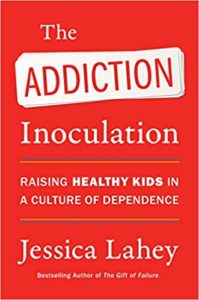
"...Pets can positively influence mental health and...well-being...They may even help prevent the development of addiction in the first place..." (source)
Book recommendation: The Addiction Inoculation and author interview about her ground breaking research, as well as her personal experience: Jessica Lahey
An overly busy schedule and happiness cannot co-exist.
Parenting experts such as Kim John Payne (interviewed here) have spoken time and time again about how precious time is. Filling this precious time with too many activities simply diminishes the joy of everyday living.
Whenever possible, eat dinner together at the family dinner table, with screens off. Talk and connect more. Play more. Simply BE more, without rushing to the Next Important Thing. Childhood IS the "next important thing."
Resources: Simplicity Parenting and Spoiled Right
If you want to make a child happy, give the child practice making others happy. Scientifically backed research proves this:
"…Evidence shows that helping others can also benefit our own mental health and wellbeing. For example, it can reduce stress as well as improve mood, self-esteem and happiness…” (source)
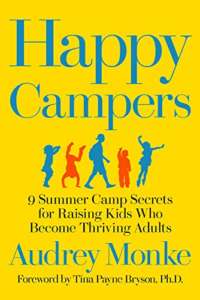
Happiness is absolutely contagious and this strategy can be implemented immediately, even amidst a busy schedule. Even small acts count as science-based ways to increase joy.
Raising happy kids is relatively easy when we do these things. However, there are some things we can do that put our child's optimal well-being at risk. They include
Daily lessons in connection and living peacefully together create the growth mindset and positive attitudes -- and lasting happiness -- that we want our kids to embody.
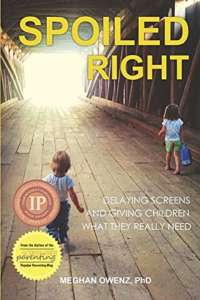
Above and beyond the suggestions above, there are other science-based ways to raise a happy child.
"...funds and performs research with universities to determine which issues most impact well-being. Research has shown that just two issues, besides genetics, seem to account for most of our well-being. [They] also educate the public through completely free apps that available in 15 languages. (source).
If there's one habit that -- above all -- summarizes how to raise a happy child, it's simply the practice of being with them. Undistracted, fully present "beingness," peacefully and in each other's presence, is the greatest contributing factor in raising a well adjusted child.
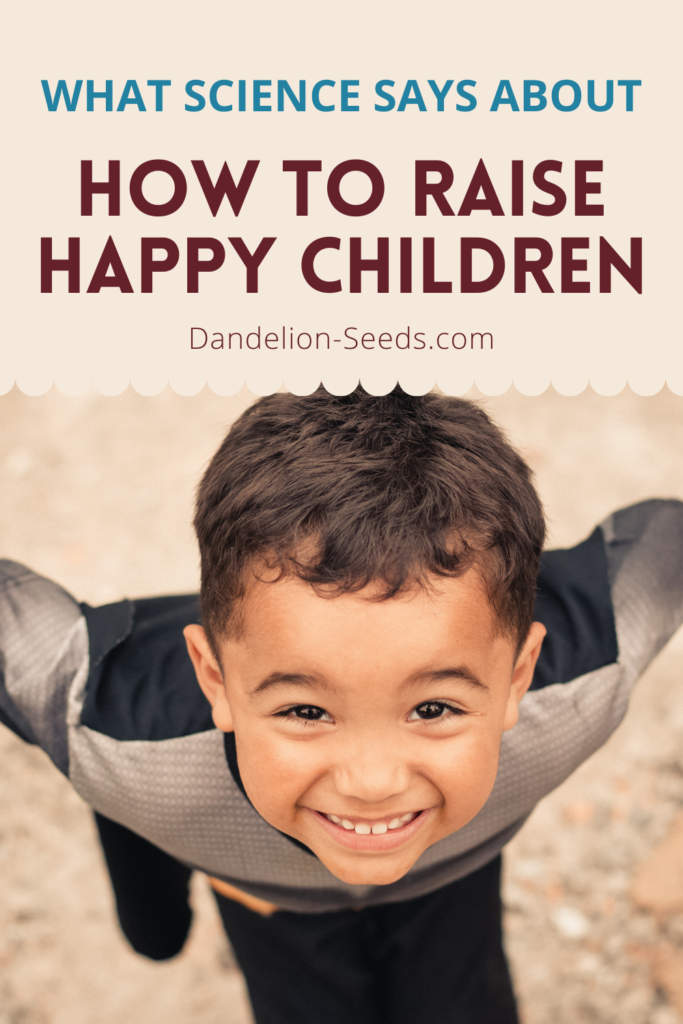
Talking back, or "back talk," is when a child pushes back on what an adult (often their parent) is saying, demonstrating what adults perceive as a lack of respect. It may include verbal components, up to and including the child having a shouting match with their parents, as well as nonverbal components, such as eye rolling.
Back talk can be MADDENING for even the most peaceful parents. No one likes yelling or being yelled at; yelling or any kind of negative attitude naturally puts our nervous system in "danger" mode.
Still, talking back is a normal part of growing up. Kids have strong emotions just like adults do, and it's natural for them to express their anger, frustration, and general angst.
Kids are learning how to assert their boundaries, wishes, and needs in emotionally authentic ways that also work for others. Life can be a bit bumpy while they're figuring this out -- especially since the part of the brain that renders them capable of taking others' perspectives, the right parietal lobe, doesn't fully develop until the late teens or early 20s (source).
What's the positive parenting perspective, then, when a child talks back? Do we just let it go when children aren't speaking in a respectful manner? Are there "consequences" when kids do this?
Take a deep breath, dear parents -- you don't need to let it go entirely. You can still set clear limits in ways that are both peaceful and respectful. Here's how to handle it when kids talk back, all within the framework of positive parenting.
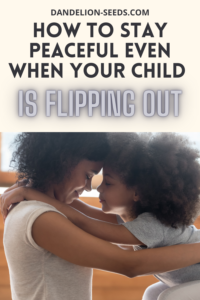
For starters, parents can do a few things to encourage their child to not talk back. The most effective way to teach respect is always through genuine connection with our kids.
We literally cannot teach a child who's in the midst of talking back. They talk back when they're struggling, and for a child who's struggling and angry, the learning part of their brain is effectively "turned off." Children must be emotionally regulated to learn. This is true at home as well as at school (source).
With that in mind, be proactive about spending quality time and creating joy together. It's the basis for all emotional connection. Secure attachment largely stems from a sense of mutual delight (source).
Model during times of calm and peace that you're there to listen and respect your child. The best way to encourage respect is to model the gentle behavior we want to see. After all, kids learn by what we do, not by what we teach through words alone.
The more you practice listening and connecting during times of low stress, the more easily you'll default to connection when conflict arises. In fact, connection begets connection -- and respect begets respect. The more often we feel emotionally connected to others, the more unnatural it feels when we don't. We want disconnection to feel unnatural, because it's not our natural state!
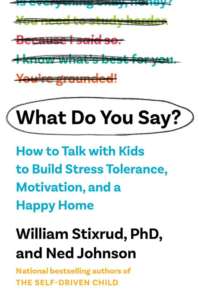
Here are three tools to help make parenting a bit easier through the gift of connection, even when your child is talking back.
We've heard from experts like Dr. Ross Greene that all behavior is communication. The same goes for talking back. Think of talking back as communicating something deeper that the child doesn't yet know how to peacefully articulate.
Talking back is neither "good behavior" or "bad behavior" -- it's simply an attempt to get their needs met.
Although it's downright hard for parents to take this perspective (parenting can be challenging!), what happens when you ask, "What kind of pain is my child in that they're acting this way?"
Children who feel good, connected, and peaceful generally exhibit what we perceive as respectful behavior.
Are they feeling angry? Scared? Are they grieving something, such as a new baby in the family or a new job that takes you away from them more often? Are they upset about a parent's work schedule and suddenly having less time together; a social or academic struggle; or are they just plain tired, hungry, or over- or under-stimulated?
Or, perhaps, if the child has been in school all day, they may simply be tired of not having had much "say" in their life. Even at home, maybe they've been following others' schedules (parents', siblings, etc.) and feel like they haven't had a vote in the flow of their day.
Often, kids "talk back" when they're not feeling HEARD. What's the fastest way to stop the back talk? Slow down and LISTEN. What's their perspective? What's important to them? How can you go beyond hearing their words and hear their HEART?
When you practice listening without judging or interrupting, back talk often disappears. This does not mean you need to agree with them. Instead, it models for your kids that they're worthy of being heard.
All this said, it's normal to feel angry, frustrated, and triggered when kids talk back. Here are more things you can do to help the child feel heard while also dropping unnecessary power struggles.
Related mini-course: Staying peaceful in the moment
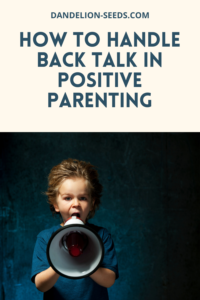
It's incredibly tempting to perceive talking back, rude gestures, and rude behaviors as being "naughty," "bad," or just plain -- well -- rude.
When we use these negative judgment labels, however, it puts us even more on the offensive, and can trigger our fight or flight response. We naturally go into self-protective mode (which is exactly what our brains have evolved to do). In fact, there's even a term for it when stress triggers our fight or flight response in our nervous system: it's called an amygdala hijack (source).

When we're stressed and in fight or flight mode, our brain doesn't respond rationally. It simply makes us react without thinking. We may end up saying or doing hurtful things. In other words, we become the parent we don't want to be.
So, how can parents "override" their triggered reactions and keep control of how they respond?
One way to get control of the part of our brain that keeps us peaceful -- and out of reactive mode -- is to change the words we use to describe what's going on.
It takes practice, for sure. We can't expect to get this "right" overnight, so please be gentle with yourself.
However, every time we practice -- even if we just visualize being the parent we want to be -- it helps strengthen our neural connections in the ways that reinforce what we want to have happen. Practice makes it easier.
As an example, what if we practice reframing disrespectful behavior as behavior of a child who's struggling?
Although we may not appreciate their approach when a child talks back, we can find empathy for a child who's hurting inside. It's easier to push the judgment and frustration aside when we realize behavior issues are simply a reflection of the child's internal state.
Likewise, we can also avoid even positive judgment labels, such as "My child is so good!"
Why should we avoid even positive labels for kids? Simply by virtue of having "good" labels in parenting, our brain also searches for the counterpoint: in this case, the "bad." Behavior is just behavior. No child is always anything, so when we stop using labels of any kind to describe the child, we're less inclined to get into black-and-white thinking that doesn't serve the relationship.
Yes, we can label actions rather than our child holistically, but even that can be a slippery slope. It's more beneficial to reframe even our positive observations in ways like this:
Words have a lot of power; we can use this power in ways that serve the relationship and encourage our ongoing connections. Be specific about the things you catch your children doing right, and they'll be more impactful. Express gratitude when you note these specifics.
Although some parents believe that giving a child consequences in the form of punishment is the only way to curb negative behavior, this often results in a power struggle, more yelling, and all the other things we're striving to avoid.
In fact, negative attention (be it corporal punishment, verbal abuse, removal of privileges, time out or isolation strategies, and other punitive measures further disintegrate the already struggling relationship.
..."[Determining whether punishment 'works' depends whether you're looking at the short-term or the long-term. Short-term, behavior modification systems, including those that promote isolation in a punitive way, can indeed 'motivate' the child to comply.
We're not looking for short-term wins, however. This is fear-based and control-based parenting. Rather than driving kids to 'obey,' it actually drives children to simply hide their behavior from us. They just get better at not getting caught so that they avoid punishment.
Furthermore, isolation-based strategies can damage their trust in us. These strategies don't promote respect; if anything, they damage it..." (source)
Related mini-course: The World Is Tough: Shouldn't We Toughen Up our Children?
Much healthier -- and much better teachers in the long run -- are natural and logical consequences. I'll share examples below, but in short, life is a very effective teacher. As such, we can use our everyday experiences together to model respectful communication.
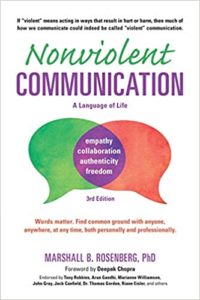
Respectful communication is a learned habit. Just like with all habits, the best ways for kids to learn healthy communication skills is to learn by example. Remember that they're
Related book recommendations that benefit all relationships: Non-Violent Communication, Atomic Habits, Why Won't You Apologize: Healing Big
Betrayals and Everyday Hurts (afflinks)
Book recommendations specific to parenting: What Do You Say? and Parent Effectiveness Training: The Proven Program for Raising Responsible Children
As challenging as it can be, when you hear your child starting to talk back, pay attention to your own approach in this moment. Oftentimes, the effect of "looking in the mirror" is a reminder to soften ourselves, first.
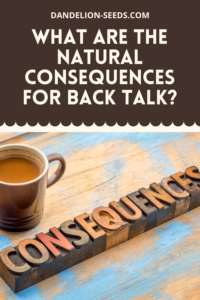
Real life is the best teacher. When children express their anger while feeling "out of control" (which is totally normal, since the part that "controls" their impulses doesn't fully develop until they're 25 - 30 years old!), a natural consequence is that the recipient of their anger won't like it.
Further, if they're talking back to other children, the natural consequences are often that those children won't want to play with them. The same goes for members of the family: a parent or sibling may feel hurt and may not respond well.
The child will realize that people tend to retreat emotionally when their feelings are hurt -- and over time, they'll learn that words are powerful.
To be clear, I'm not saying we should shame or punish a child in any way. Even parents and other family members can be aware enough to use non-violent communication strategies. Here's an example of what that might sound like:
"Hey, sweetheart. When you speak to me that way, I feel angry. I want to have a peaceful relationship with you. Would you be willing to go outside with me and breathe some fresh air before we continue this talk peacefully? I'll be able to listen better when I get out of the house for a moment."
Alternatively, we might calmly say,
"I hear how upset you are. I want to be able to talk about this, but I won't be called names. Please pause for a moment and then let's continue without name calling."
You get to have, and lovingly enforce, healthy boundaries.
Sometimes when a child talks back and the parent wants to be peaceful, the parent can end up feeling powerless. Feeling powerless is not the goal. To the contrary, you still have plenty of power to help heal the relationship.
Here are some logical consequences that teach:
Think of big feelings like a volcano. When the volcano overflows, things get messy. If we can proactively keep the lava low, however, it won't overflow. Some ways to get big feelings out proactively include listening to music with a heavy beat, dancing with large movements, or yelling (the yelling can be about anything -- go outside and yell, "THE SKY IS SO BLUE TODAY!" Whatever. It doesn't matter. The point is that you're "venting the volcano" so it doesn't overflow.
The answer is often allowing the big feelings to exist and releasing them peacefully, rather than stuffing them down (here's how). This can do wonders for the nervous system.
Finally, when a child is talking back, it can be helpful to have a pre-established code word to let you know when one or both of you needs to cool off. The moment either of you uses it, it lets the other know they need co-regulation and connection.
After all, connection is our natural state, and healing together is always possible.
"The birds and the bees" is the mother of all euphemisms. It's how people used to refer to the so-called sex talk that parents have dreaded since...actually, not that long ago.
Up until fairly recently, farm life was children's natural foray into sex education. Want to learn about how reproduction works? Look no farther than the pasture in the springtime, kids. Animals have never had any shame about their sexuality. It's as natural as the sun rising and setting.
Most of us don't live on farms anymore, though. As such, talking about what kids see has changed over time from "what those cows are doing over there" to talk of tall buildings and city buses. Many of us live nowhere near nature, much less near nature where reproductive things are happening.
If children aren't exposed to sexual processes on the farm anymore, though -- including actual birds and bees -- how are they to learn about it?
* By the way, I'm referring to the birds and the bees only because people still search the Internet using these exact terms ("birds and bees"), and I want them to find newer, science-backed approaches to how to discuss this topic. Personally, I am very comfortable talking about sex just as it is. If you're not, though, I've written this article as gently as I can while still being true to science and my own experience.
I can thank a local rooster for piquing my eight-year-old daughter's curiosity about the birds and the bees.
One day earlier this week when we were at a local farm, a rooster took a liking to a particular fine lookin' chicken, unzipped his leisure suit, and the rest was history. The amorous rooster and chicken were about 10 feet away from my daughter so she saw the whole exchange in vivid detail.
Tonight at dinner, seemingly out of the blue, she said, "I've been thinking about lawnmowers, Mama. And roosters. By the way, how exactly does the rooster fertilize the chicken's egg? Tell me how THAT happens."
I finished my bite of dinner, feeling thankful that my mouth had been full so I could buy a few moments of figuring out what to say.
I did what many self-respecting parents do: I stalled. I replied, "Ummm...let's finish dinner first, okay? I need to think about this." (It's totally fine to delay a few minutes if you're anything like me and want to giggle despite your BEST ATTEMPTS at being a mature adult. I needed a moment to get my act together.)
After dinner, though, and while we were upstairs getting her ready for bed, I pulled up my proverbial big-girl bootstraps and invited more dialogue. I asked, "What was it you wanted to know about the rooster?"
You see, I wanted to give her the opportunity to refine her question (or opt out of it if she wanted to focus on something else -- because, as you know, once this cat is out of the bag, it's out forever).
She stuck to her original question.
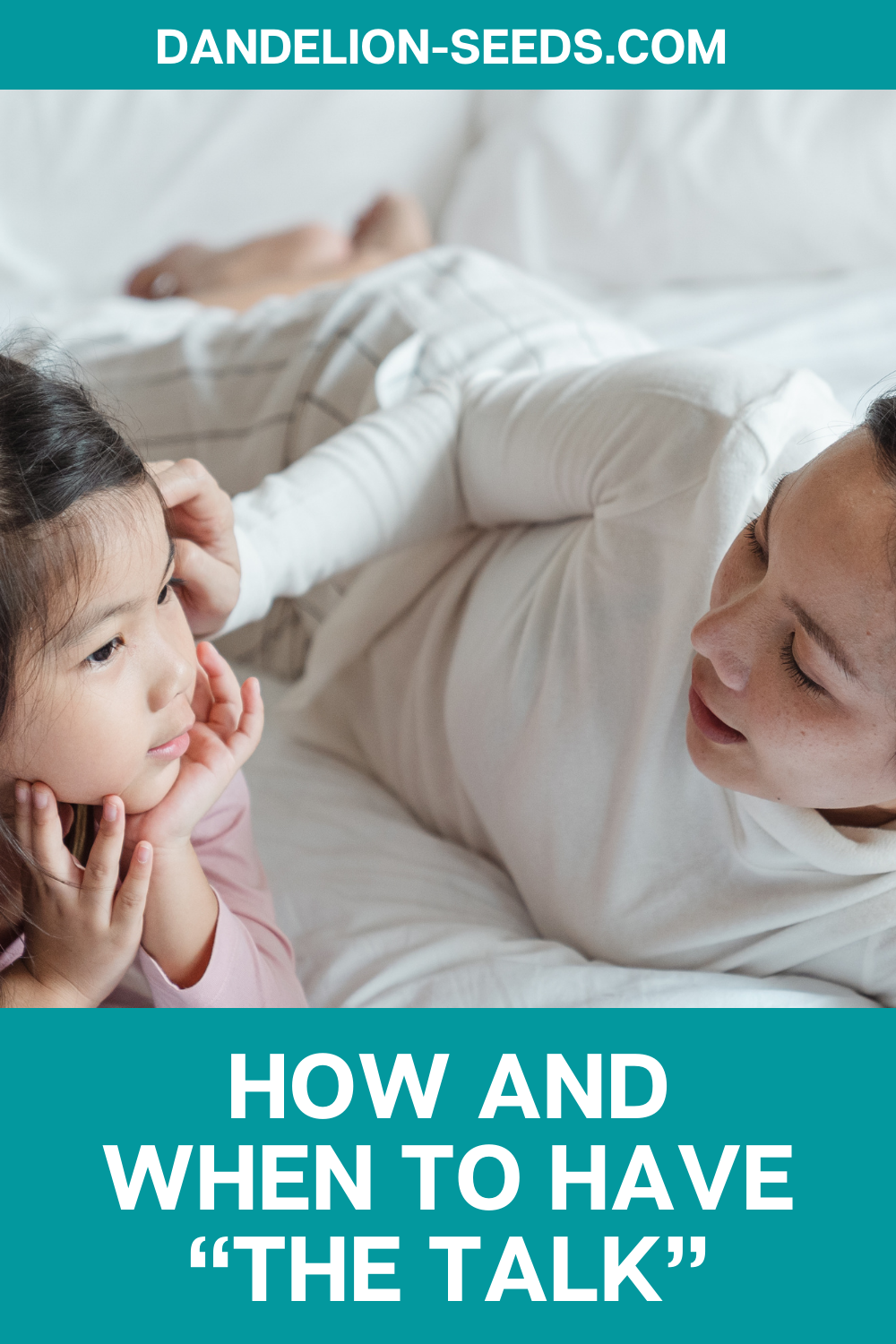
I told her in my best birds and bees voice (every parent comes equipped with one, I learned tonight), "Do you remember how males have cells called sperm?"
"Nope, Mama, I don't remember that."
Okay, well, I know we've covered that before, but whatever. "Males have sperm. Females have eggs, as you know. When the male's sperm connects with the female's egg, it fertilizes it and makes a baby."
"Oh, okay," she said, "So men and women go potty on each other?"
I replied, "No, the sperm does come out the penis, but it's not in its urine." I then proceeded to get into a highly detailed and intentionally deep and scientific discussion of zygotes and twins versus singletons, multiple births, etc.
I basically succeeded in throwing her off the trail through the gift of boredom -- hooray!
But no, not hooray. I caught myself and remembered that I'm a parenting educator so I have to model authentic and accurate discussions with my own child.
At this point, it was time to go to her bedroom and turn off the lights (phew -- now she couldn't see me blushing because I BLUSH AT SERIOUSLY EVERYTHING. My darn Snow White skin is a serious liability sometimes.)
I explained that the sperm has to get really close to the egg before it can fertilize. (How am I doing? Was "really close" descriptive enough? No? Dangit!)
She said, "Okay. I'm tired."
Shoot. I'm 95% of the way through the sex talk. I can't quit now.
Knowing she was tired AND that we were in the dark, I added, "By the way, for the sperm to get close to the egg, the penis has to go inside the vagina."
Suddenly my child is wide awake again.
"WHAT? That's just WEIRD, Mama. Have you ever even SEEN a rooster's penis?"
I replied honestly, "No, I don't think I have."
"Well of course you haven't, Mama -- it's not like they go around lifting up their feathers like a skirt and saying, 'Hey, everybody! Look what I've got under here! It's my rooster-penis!'"
Okay, now I'm giggling and doing my best not to shake her bed with my laughter in the dark, lest I make this even more uncomfortable for both of us. Rather, more uncomfortable for me. She is clearly fine.
Part of what I'm finding funny is that our sex talk actually does involve the birds and the bees, even if we've only focused on the birds so far.
She drifts off to sleep singing a quiet chorus of "Cockadoodledoo" on repeat. I keep giggling to myself.
And that's that. She knows.
And we're both alright, even if I'm now picturing roosters sauntering around with their skirts up.

We can begin sex education when our children are infants, insofar as we can name their private areas for them just as nonchalantly as we name their ears, noses, and 10 tiny toes. Diaper changes and bath time are great opportunities to practice getting comfortable talking about body parts.
Only adults carry shame and embarrassment about these words, although there is nothing inherently shameful about them. They're just body parts. Until we ascribe some deeper meaning to any part of the body, it really is neutral territory.
Plus, the younger our child is when we get comfortable talking about words that may make us blush, the more practice we'll have not blushing when our young child someday asks us an awkward and unexpected question, like what happened tonight.
I was really glad I didn't have to go back to square one and name all the body parts involved. She already knew those and feels completely comfortable with them, as do I. It's important that we use anatomically correct language for our children's safety.
The thing is, children are naturally curious about the birds and the bees. It's human nature to search for answers about why we have these parts in the first place.
As a general rule, children are pretty literal and will ask only what they want to know. We can answer truthfully and simply. When they want more detail, they'll ask for it, especially if we've made open dialogue emotionally safe for them.
We can deliver answers in bite-sized pieces. Ultimately, this makes the sex discussion easier on both of us, while we cover just little bits at a time.
The only newsworthy item tonight was the how of sex. She already knew the names and general purpose of all the parts, thanks in part to her years of unwavering commitment to joining me in the restroom.
Very young children don't need to know a whole lot, other than, for example, which parts of our bodies we use to go to the bathroom, and that breasts are for nursing children. They'll ask more when they want to know.
As they grow, you can ask your child's school, guidance counselor, or local librarian for good reference material that's age-appropriate. They can often provide wonderful and free resources about reproduction, tips for how much to share based on this child's age, and other related information. Many wonderful books exist nowadays to make the discussions easier.
Related mini-course: Body Safety: How & When To Talk To Kids About Their Bodies
In short, here's what you need to know:
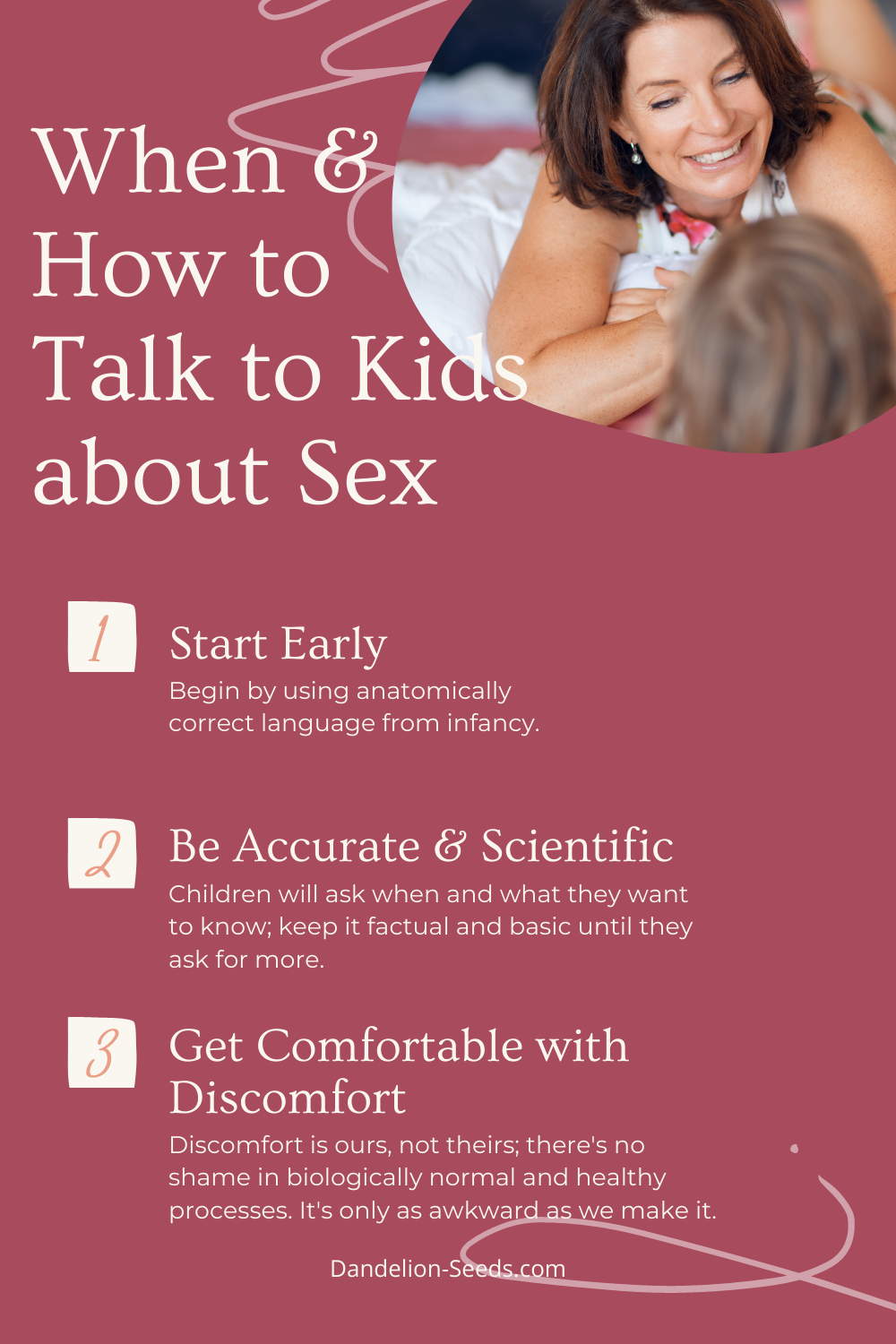
Parents and caregivers have the primary relationships with their kids, so it's on us to address topics of a sexual nature. We shouldn't assume kids will learn the correct information at school, especially since their primary reference might be what they learn from their friends on the playground.
School will instruct children to some degree, yes. However, kids will want to know more than what most schools teach, such as specifics related to their sexuality, or the sexuality of others they may know. The older children get, the more questions they'll have -- and it will no longer involve roosters (who, as it turns out, don't actually have penises at all).
It's really important not to shame or embarrass children for asking. I'd much rather a child ask their parents than search the Internet for the answers; God only knows what they'll run across in the media. We don't want our kids educated by inappropriate videos or online predators who'd be more than happy to teach them.
Related article about abuse: Safe Touch and Sexual Safety
In a nutshell, we need to be honest, patient, and open. We have to accept that our kids ARE going to learn about sex. The choice is ours how and where we want them to hear the specifics of the message, provided that no one else has told them first.
We're more likely to be their safe place for questions about birds and bees -- or, let's call it what it is -- sex, because we've created safety around the entire discussion, the birds and the bees, roosters and all.
After-school restraint collapse is a fancy way to say after-school meltdowns. And I want you to know this: they're normal. In fact, they're downright common and can happen to all kids.
More on that in a moment. Here's what the reality feels like, though: it's messy.
You may be eagerly and happily awaiting the arrival of your child as they come home from school, anticipating they'll be full of stories and wonder -- then BOOM. It's like a tsunami rolls in your front door and you're left with the emotional aftermath (not to mention all the cleanup).
What's going on?
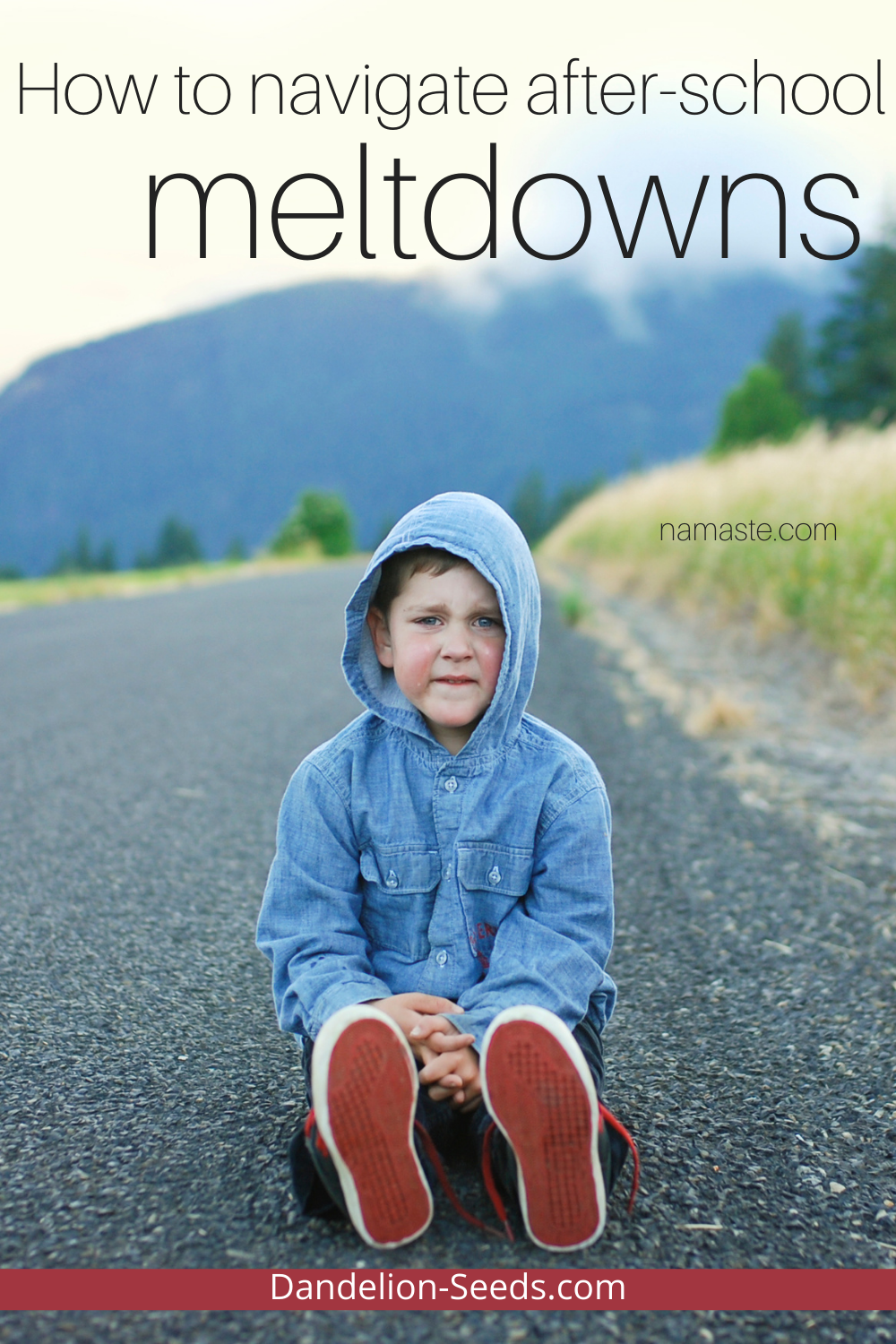
After-school restraint collapse is a meltdown that a child experiences after school, and specifically as a result of their school experience.
While the after-school restraint collapse can affect all kids, it can be more prominent in sensitive children with learning or socialization problems. Further vulnerabilities, like a lack of sleep, hunger, overstimulation, or sickness, may result in even the most even-keeled child losing control at home. (source)
Does this mean there's something wrong with your child? Are they TOO sensitive or do they have a "socialization problem?" Does it mean they hate school and you shouldn't send them back? Probably not at all. They're probably just overwhelmed and having a good old fashioned meltdown.
Having meltdowns doesn't mean children are regressing to the toddler years (unless, ahem, they're actual toddlers). It just means they're human, having big human feelings like every other person on Earth. We all get overwhelmed sometimes.
Because they're kids, though, they need some special support when they get home -- along with some specific tools to help them decompress.
For all children, school may or may not be a safe place emotionally. That doesn't necessarily mean that "unsafe" things are happening at school.
To the contrary, it simply means that school can be overwhelming, even for kids who absolutely love school.
However, unlike at home where children generally feel free to be themselves, school is about conformity. School is about obeying the rules; about being quiet; and not being disruptive in class. To a point, having a predictably calm learning environment is essential for learning to happen in a group setting.
As such, except at designated free times, children are generally expected to contain their energy and behave a certain way.
To be clear, I'm not dissing schools. In their defense, schools -- and teachers in particular -- are almost invariably doing the best they can with the resources they have. Still, there's a schedule to be followed. Adults often enforce certain rules with the intent of helping children learn and progress academically. Teachers simply can't slow down much when one or two (or more) children are waffling emotionally while the rest of the class is waiting. There's work to do.
What happens to all the children's pent-up energy, though? If they can't let it out through playing, roughhousing, and moving whenever and however they feel called to do, it has to go somewhere.
In many cases, children simply bottle it up and save it for when they get home.
School can sometimes feel like a pressure cooker with no release valve.
Kids need to decompress. Especially for the child who behaves well by the school's standards and you know is under a lot of pressure, we, as the adults, need to create a safe space for them to process what happens at school every day. If they don't decompress, it's a sure-fire recipe for upheaval.
Incidentally, these restraint collapse meltdowns differ from tantrums in some notable ways.
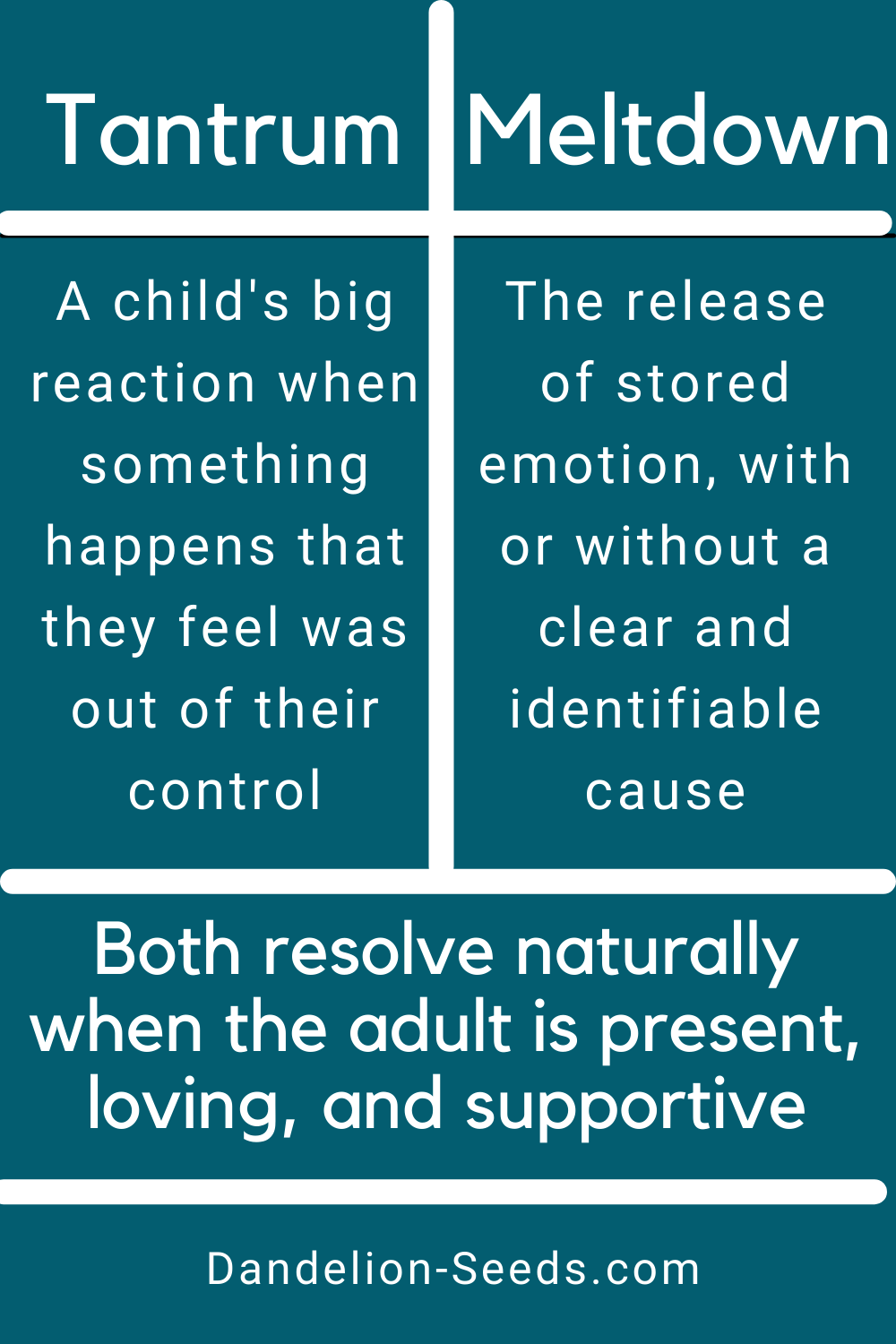
A tantrum is a child's big reaction when something happens that they feel was out of their control. They have strong feelings that things should've gone their way. It's often tried to a specific frustration.
Example of a tantrum: Your child has been mentally planning for a sandwich for lunch. You serve pasta. They express their displeasure loudly, perhaps seeming to lose all sense of self-control in the interim.
A meltdown is the release of stored emotion, with or without a clear and identifiable cause. It may manifest as something that seems small to the adult, such as the color of the child's cup -- but really, it's the proverbial straw that broke the camel's back. It's often associated with feelings of overwhelm.
Example of a meltdown: A child sits down to start their homework. Rather than happily starting in on it, they start to yell about the homework, not wanting to feed the cat, not wanting to take a bath, etc. Suddenly it feels like everything is wrong.
Parenting is hard when you're unsure where to begin soothing the child.
As a parent and parent educator, I choose to reframe the word "meltdown" as an "emotional release." I've never liked the term "meltdown" because, for many people, it ascribes a negative connotation with completely normal behavior. It's healthy to get our feelings out. We all need effective decompression strategies that support our mental health.
For children, crying and "acting out" are often their natural ways to connect with us. If we're responsive in supporting them, it reinforces to their brains that the world is a safe place.
That doesn't mean that all behavior is acceptable; but the expression of emotions certainly is. This is part of growing their emotional regulation skills. They learn that it's safe to feel their feelings.
Here are some specific steps we can take to support our kids and help them through restraint collapse.
The only things you can predict are that your kids will
...but there's no way to know in advance what that something is. Parents often naturally assume that when their kids get home, they'll be happy. As we know, though, that's not always the case.
Sometimes it helps to have a phrase to repeat to yourself before your child comes home. For example, "I wonder what my child will be feeling today."
In doing so, you bring yourself to a place of neutrality. You remove your expectations and set the stage for holding space for whatever your child may be feeling.
An overwhelmed child doesn't need to be rushed to the next big event. If they enjoy extracurricular activities and events, that's wonderful -- and they still need downtime. No child needs to practice "burning the candle at both ends" before they even reach adulthood; that only leads to future burned out grown ups.
Kim John Payne, M.Ed., speaks extensively about this critical need for balanced and planned downtime, including here in this recent interview. Even the busiest and most social kids need quiet time to relax and regroup.
What does this downtime look like? For some, it's time together outside in nature, walking or riding a bike; others just need some space to be alone and process. Still others want to talk and connect with you. Of course, they may feel different emotions day-to-day and their needs for support may change.
Perhaps the most important stress-busting tool to help them deal with stress in healthy ways every single day is the next point: play.
Kids spend all day at school moving from one highly structured event to the next, save, perhaps, for recess. When we allow more of it, though, here's what happens:
"Recent research suggests that children should experience twice as much unstructured time as structured play experiences and touts the benefits of unstructured play on whole child development including fostering social competence, respect for rules, self-discipline, aggression control, problem solving skills, leadership development, conflict resolution, and playing by the rules." (source)
When children don't have enough play time, their stress levels go up. It makes them suffer not only emotionally, but also physically (source). It then takes less extra stress to push them into meltdown land, so why not lower their stress by doing that which comes most naturally to them -- more play?
When your child gets home, I recommend you greet them with these three things:
For many kids, it's just plain hard to be away from you -- the person they love most in the world. Many people wrongly believe that after a certain age, separation anxiety should no longer exist.
In truth, we all miss our loved ones sometimes. Healthy separation anxiety, to some degree, should last forever. It means they care.
If separation anxiety is an issue, you can do several things to stay connected even when you're apart. Here are some starting points.
As Drs. Daniel J. Siegel and Tina Payne Bryson say, "Name it to frame it." Help your child name what they're feeling. Some kids may not even realize the "energy burden" they've been shouldering all day.
Some benefit from having a calm-down corner (which is NOT a time-out), whereas others prefer to co-regulate. Follow their lead. No matter their preference, the key message you want to convey is "You and all your feelings are safe here for as long as you need to express them." Being their rock helps create and/or reinforce their secure attachment to you.
Parenting is hard enough without us having to feel responsible for our child's after-school restraint collapse. Know that you didn't cause the restraint collapse; you're their safe person with whom to express it. Figure out what you need to feel peaceful regardless of whatever emotions roll in alongside your child.
When you can be their calm and know that you're their source of security and safety, this is what matters most. You're there for them. Keep showing up, and soon enough, they'll lean more fully into the peace they call Home.
A coherent narrative is how we make sense of the stories we've created for ourselves about the events that have transpired in our lives.
If we can talk about a past event in a fluid, congruent, and logical way, our narrative is coherent. If our story is disjointed, confusing, or missing parts that would be critical to understanding it clearly, our narrative is incoherent.
We sometimes have an incoherent narrative when we've experienced a particularly stressful and/or traumatic event. An example might be an unexpected loss of a loved one or a pet. We may have a sense that we're "all over the place" when we talk about it. We feel disjointed and discombobulated. We may not even be sure how we got to this difficult point in our lives in the first place; we just know we're struggling. It may feel really, incredibly, insurmountably messy.
Conversely, with practice -- and sometimes with professional support -- adults can create a coherent narrative for their stressful or traumatic events. Perhaps we debrief about a stressful situation with a friend or partner; we might journal, pray, or meditate about it. We might work extensively with a therapist, if appropriate. Regardless, we "get it out" somehow and make sense of what happened.
Regardless of our method and emotional state, many of us have learned from experience that when we can get things off our chest and feel heard, we feel better. When we release our wounds by not only telling our stories, but also making sense of them, we can gain a greater sense of peace.
Making sense of our stories and forming a coherent narrative helps us heal. This is why it's important to consciously and intentionally process what's happened.
How exactly do we heal, though?
For both adults and children, there's great hope of creating a coherent narrative through intentional storytelling.
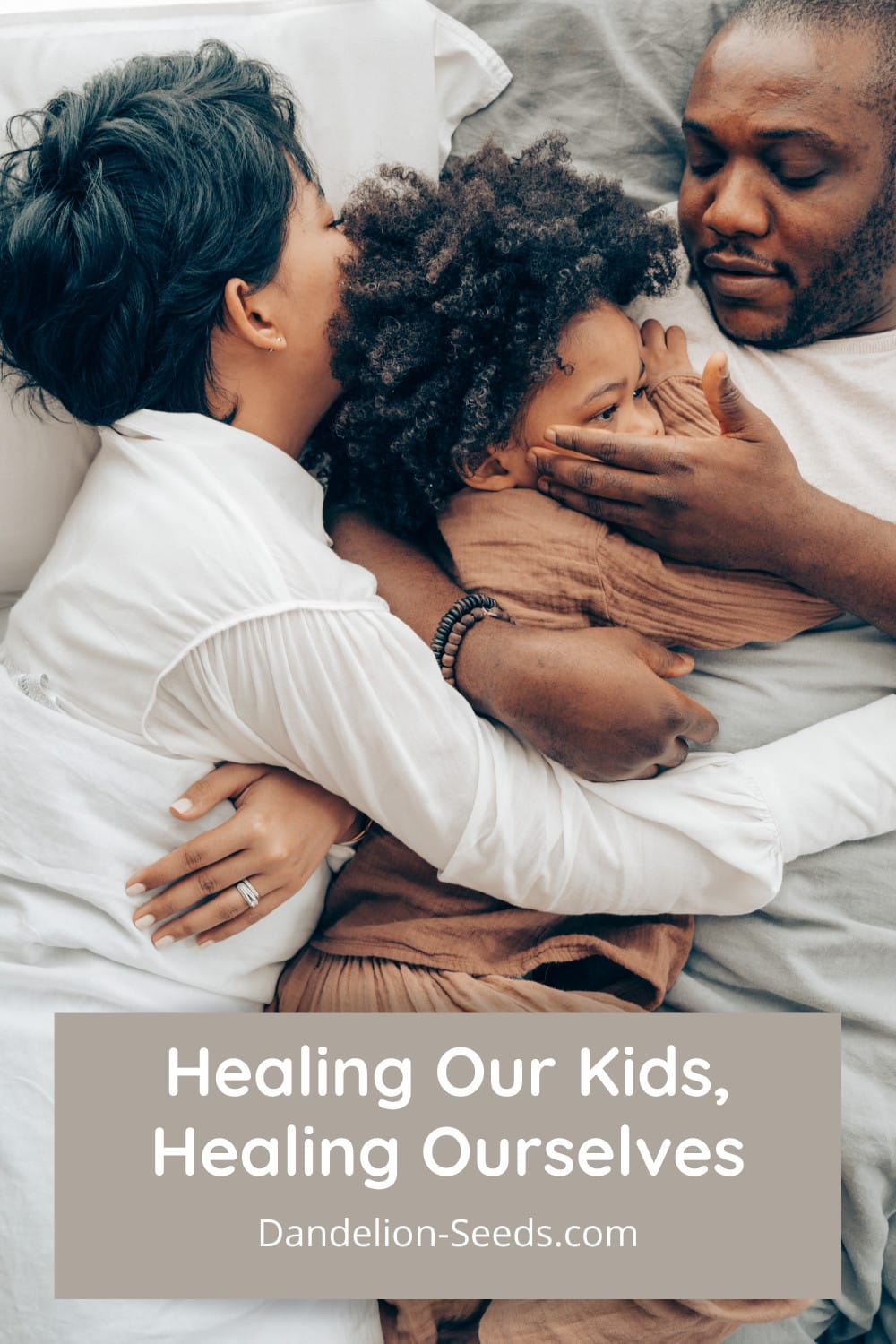
We know that keeping a difficult memory from the past bottled up could negatively affect our present and future wellbeing. At the same time, we all know the power and importance of healing. Coherence often comes from being able to essentially dissect a memory and makes sense of it.
For young children, however, this can be tricky for a variety of reasons.
For starters, children are still developing their sense of self. They're learning where they fit into their family, their school if they have one, and their place in their community. Their family patterns are just being established for the first time. They lack enough past experience to understand the context of situations, and how their ability to process them matters.
"Is my experience normal?" children might wonder. "Does everyone go through what I just did?" As a mere function of their young age, they've not yet had the opportunity to decipher all the patterns and schemas that are essential to understanding how life is supposed to work. Everything is normal to them because it's all they know.
Further, their language skills are not as developed as those of an older child or adult. It's certainly hard to form a coherent narrative if they don't even, quite literally, have the words to describe their story.
Moreover, emotional regulation and communication in general are new to them, as is developmentally appropriate. In fact, the part of their brain that's primarily responsible for making sense of situations, helping them plan, and helping them understand the consequences of their actions hasn't even fully matured yet. This part of the brain is called the prefrontal cortex, and it won't be completely developed until the child is approximately 25 years old (source).
Just because children are young, however, it doesn't mean they're likely to just "forget" an event of the past and move on from a negative experience. The brain doesn't work that way (as helpful as it might sometimes be if it did).
As Bessel van der Kolk explains in his book, The Body Keeps the Score (afflinks), our bodies do indeed hold onto previous experiences, both negative and positive; both actively remembered and "forgotten." Further research exists in Dr. David Sinclair's Lifetime: Why We Age and Why We Don't Have To. It addresses how our genes store our life events and can directly affect our longevity.
Interestingly, as we now know from neuroscience, we have not just one type of memory, but two: implicit and explicit. Both types of memories are stored in our nervous system in meaningful ways. They can affect our physical and mental health.
Our implicit memories are the ones we don't actively remember. Often, they include experiences from when we were very young. Tina Payne Bryson, Ph.D. describes how it works in this video interview. She and Daniel J. Siegel, M.D. also address the concept in their best-selling parenting book, The Whole-Brain Child. Explicit memories are the ones we consciously remember.
If you're wondering whether it's possible to heal from and create a coherent narrative for memories we didn't even know we had, the answer is a resounding yes.
Whether we, or our children, clearly remember our experiences is, in some ways, of little importance. Of course, it's easier to create a coherent narrative when we have an obvious memory of an event that's transpired. It's not required, however.
Whether for ourselves or for our children, when we experience a feeling for what seems to be "no good reason," we can shift from dismissing the feeling to letting ourselves feel it. We can interpret the feeling as a messenger.
If this feeling had a voice, what would it be saying to us?
As Drs. Siegel and Bryson often say,
For example, if sadness comes up for you when you walk past a lake you've never wandered past before, you might be inclined to wonder, "Why do I feel sad? It's beautiful here. I need to get over it and distract myself. I should be thankful for this view. What's wrong with me?"
It's quite likely that nothing at all is wrong with you. The images in front of you may be triggering something that's entirely out of your control, yet according to the content of an interpersonal neurobiology course by Dr. Dan Siegel, dismissing them won't address your authentic internal experience. (source)
What if, instead, you responded to your sadness in this example with, "Hmmm. I feel sad. Sadness, thanks for joining me. I don't know what's bringing you here, but walk with me as long as you need to." Befriending all our feelings, even those that have traditionally made us feel uncomfortable, helps us feel safer with them.
When we feel safer with our feelings, we can hear their messages more accurately.
We no longer need to run from ourselves. Instead, we can meet ourselves with self-compassion and gentleness.
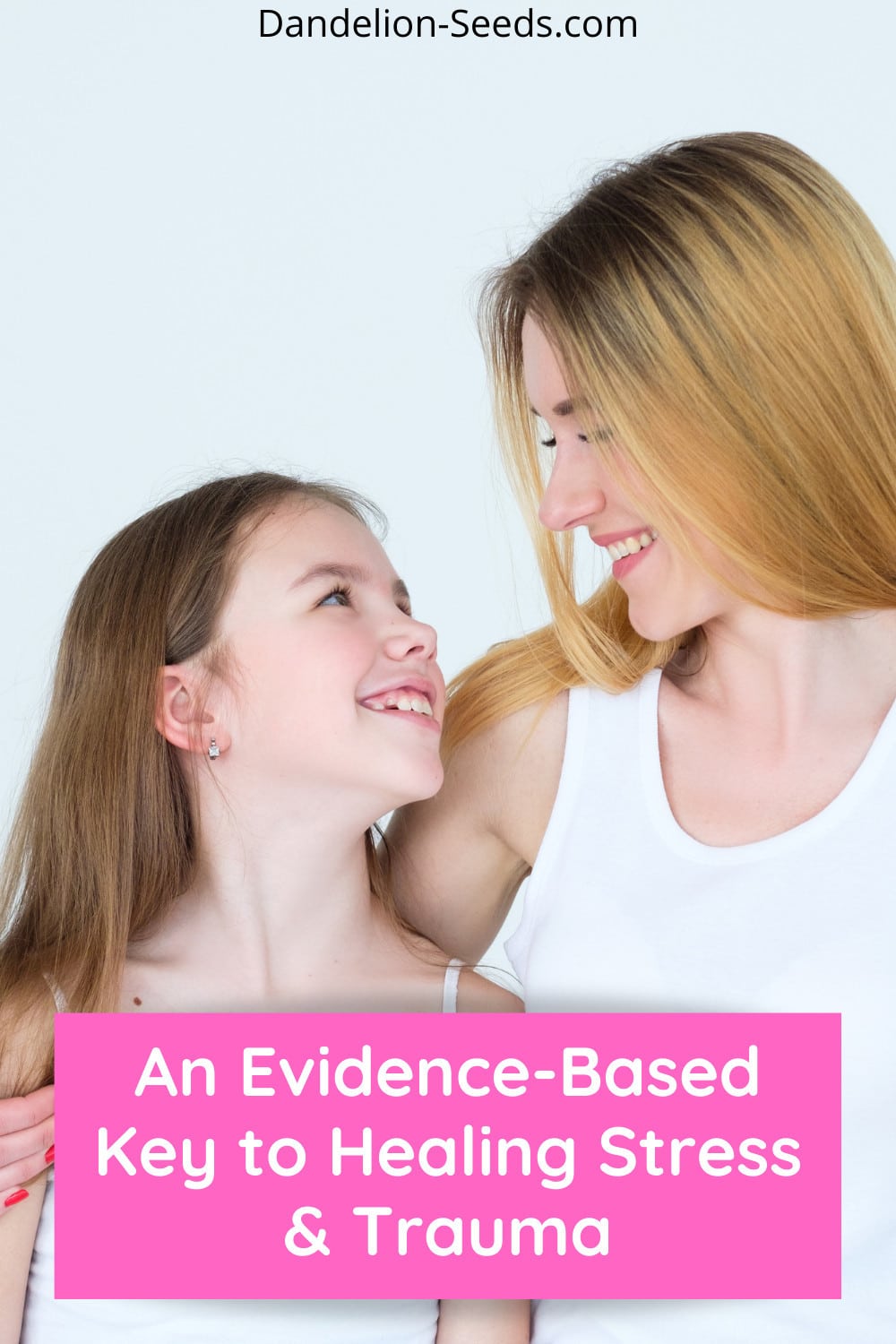
Oftentimes, we fear our own anger, in particular. It's not necessarily that we're afraid of the repercussions of our anger. Rather, we often want the anger itself to go away as quickly as possible. It's uncomfortable. When we reframe anger as a messenger, however, we can get curious about it and ask ourselves things like, "What am I needing right now?"
Anger sometimes tells us, for example, that we have an unfulfilled need that only we have the power to provide for ourselves. It may also be telling us that we have some work to do around setting boundaries.
We are responsible for meeting our own needs. This isn't to say we don't need other people; yet, no other person can ever be singularly responsible for our wellbeing.
Moreover, allowing ourselves to welcome our feelings rather than suppress them is a key to releasing whatever patterns we've been carrying, even if the patterns are unbeknownst to us.
If a child seems to be having an "off" day for no discernible reason, or expressing their big feelings in ways that catch us off guard, we can get curious about them. We can hold space for those feelings.
We can model for them how to trust and accept their feelings by honoring their emotional experience, whatever it may be. We can help them make friends with their internal lives; to embrace their emotional journey. We can teach them not to run from their feelings, but instead, to welcome the integration of whatever their full experience is telling them.
A child's ability to engage in healthy communication with themselves later, when they're an adult, often rests on their family's welcoming ALL of their feelings when they're young. They learn whether their feelings are "safe" or "unsafe" -- even when those feelings arise for seemingly "no good reason."
Trauma doesn't have to have happened directly to us for it to still be significant. Above and beyond subconscious memories from our own lives, intergenerational trauma may come into play, as well. Intergenerational trauma is defined as this:
"...trauma that gets passed down from those who directly experience an incident to subsequent generations. Intergenerational trauma may begin with a traumatic event affecting an individual, traumatic events affecting multiple family members, or collective trauma affecting larger community, cultural, racial, ethnic, or other groups/populations (historical trauma)..." (source)
An example might be a grandfather who experienced trauma by being on the front lines of a war; his stress may be carried on epigenetically in future generations. (source)
It's important to process whatever feeling comes up, even if the triggering event doesn't seem related to whatever feelings are arising.
It may not be our "stuff," but it might just be our stuff to heal.
In this video, Dr. Siegel shares his research around forming a coherent narrative to create a healing story.
When we directly remember experiences that need processing, one of the easiest ways to create a coherent narrative is to "replay" the events in question for in emotionally safe ways. We can use language that helps form healing memories about whatever's happened, and the emotional tools to deal with them.
I'll share an example of a recent day in my life with my husband and child. I'll share the same story twice; once with the event in factual terms without much of a coherent narrative, and again with narratives that helped my child know what to do with the information. As the adult doing the explaining, I also benefit from making sense of the story.
Our family drove up a mountain. We didn't know we needed reservations to hike so couldn't get past the gate. We had to drive back down the mountain to get Internet access and reserve our time slot. Then we drove up again and had to wait. It started hailing before we could even reach the trail. We chose the wrong trail. We hiked for hours longer than we meant to. A spider fell from a tree and went down my husband's shirt, and when he tried to shake the spider off his hand, he threw his wedding ring into the woods and lost it forever. The car wouldn't start when we got back to it. Plus, it was my birthday.
What in the world just happened? It sounds rather negative, doesn't it? It also doesn't make a whole lot of sense as is; it's just a string of bad news.
If my child and I stayed with this as our narrative, it's entirely likely that we'd not have a healthy or peaceful memory of that day.
Even worse than telling the story about the day like this, is if I say nothing. If I say nothing to my child about the day, we both lack the opportunity to form a coherent narrative around it. The bad day simply stays a bad day. There's no "story" to make it better; it just lives on in blah-land.
On my birthday this year, our family drove up a mountain to go hiking. It was such an adventure! We didn't realize we'd need a reservation, so when we reached the top of the mountain, we were turned away by the forest ranger at the welcome center. Unfortunately, there was no Internet access at the top of the mountain, but it was easy enough to drive back down the mountain and get Internet access. When we drove back down, we were able to get a reservation. I'm so thankful we didn't have to cancel our plans!
We had to wait only an hour for our allotted time slot once we were back at the top, which was the perfect amount of time for us to have lunch and stretch our legs a bit before the hike. Waiting turned out to be a gift, though, because a hailstorm started and we were still close enough to take cover in the car rather than being hailed on out in the wilderness somewhere.
Once the hail stopped, we started on our hike, only to realize that we'd taken a longer trail than we needed to take. On the bright side, it was more exercise and more time in nature -- called forest bathing -- so doubly beneficial! The scenery was incredible and we all felt so connected.
Towards the end of our hike, we had a surprise visitor -- a spider fell down from a tree and landed in the back of my husband's shirt! When my husband grabbed the spider and tried to shake it off, he accidentally tossed his wedding ring into the wilderness. If there's a bright side there, it's that our 10-year-anniversary is coming up and we've been renewing and healing our marriage. The opportunity for him to get a new ring later this year will be the perfect way to celebrate the healthy changes we've made.
Once we got back to the car, we realized the battery in my key fob had died and my car didn't start. With some creative thinking by the forest ranger and my husband, however, we found a way to start the car and drive back home. Plus, rather than having to throw together a rushed dinner, it was a good excuse to stop at the new pizza place I've been eyeing. Overall, despite its challenges, it was one of my favorite birthdays ever.
As you likely noticed in this coherent narrative,
Making sense of our story in positive ways not only creates a coherent narrative, but it also offers us significant opportunities to see the good in all situations -- the silver lining, as it were.
To be clear, a coherent narrative doesn't have to have a happy ending. I choose to add positivity because we also know this to be true from neuroscience, and the work of Dr. Donald Webb and later Dr. Siegel:
"Neurons that fire together, wire together."
What does that mean? It means that the more we practice something (even simply practice repeating a thought), the more naturally our brains reinforce our chosen way as their default patterns. Related to this story, that translates to the more I tell myself that this version of the story is accurate -- with the happier perspective -- the more my brain will create neural connections that help me naturally remember it this way.
Also, the same principles as above apply for forming a coherent narrative and healing: "Name it to tame it" and "feel it to heal it." The remedy is universal.
The more attuned an adult is to their child's inner world, the more they can help them create a coherent narrative that's free from the adult's narrative and unintentional biases. It's not always about the adult's coherence; it's about relaying accurate information from the child's perspective.
For example, let's say a child witnesses their parents arguing. A coherent narrative for one or both of the adults might include why they were arguing and what each of them brought into the heated discussion.
The child might not benefit from this being part of their coherent narrative. It might not make sense to them. Instead, the child's version of a coherent narrative might sound something like this, as explained to the child by the parent:
"You saw Mommy and Daddy yelling at each other. Mommy got upset and threw down the pen she was holding. That made Daddy jump. When that happened, it was scary for you because you didn't know what was going to happen. Then, Mommy calmed down and apologized. Daddy accepted her apology and then they hugged. Now they're peaceful again and everyone, including you, is safe."
Here, not only is the story accurate from the child's perspective, but the adult is clearly attuned to the child's unique perspective. Attunement helps children feel seen and validated.
Children need to feel that they're not alone; that someone "gets" their experience. Part of a successful and coherent narrative may include a feeling that, "My feelings make sense. I make sense." Validation of that for the child can offer them incredible emotional safety.
Whatever story we tell them about their relationships and experiences, especially those that they don't explicitly remember, is the story they'll carry forward through life.
Resource: Daniel Hughes, Ph.D., works extensively with childhood victims of abuse and trauma. His "PACE" approach focuses on Playfulness, Acceptance, Curiosity, and Empathy from adult to child. More details for those who are interested are available on his website.
As it turns out, we don't just feel better when we tell our stories to others. This storytelling is deeply healing and beneficial.
"Narrating about personal experiences in a coherent manner is...beneficial for one’s well-being." (source) Specifically, according to the research of Daniel J. Siegel and other mental health experts, creating a coherent narrative can be a key to integration, or a fully embodied acceptance, of our stories. This integration can be a key to
These narratives don't just have to be recent events, above and beyond intergenerational trauma as covered earlier. Creating a coherent narrative around events that have long since happened in our own lives -- even those from years ago -- can still offer protective benefits. In other words, it's never too late to heal.
As an example of the longstanding opportunity for healing, Dr. Daniel J. Siegel shares, in his online interpersonal neurobiology course, a story of a 92-year-old man who finally heals from childhood trauma. He was able to reset relationships that had suffered for almost a century.
The brain holds our memories for as long as we need to process them. And when we process them with a coherent narrative, we can heal.
Needless to say, releasing our early traumatic experiences as soon as possible and allowing ourselves to heal is better than harboring long-term stress and trauma.
If there's any good news here -- and there truly is good news aplenty -- it's never too late to create a coherent narrative and benefit from the healing process. We can do this work for ourselves and alongside our children. From this work, everyone in our inner world is better for our healing journey. And it all starts with making sense of a story.
Gentle parenting is a paradigm shift from control-based parenting to connection-based parenting.
It's also quite the buzzword these days. While it's great that there's so much more awareness of gentle parenting than there used to be, there's a risk: not everything that goes by that name actually brings any greater sense of peace to the home. There's a lot of false advertising out there.
How can you tell what gentle parenting really is -- and what it isn't?
This section covers what gentle parenting will look like in action, and what parenting styles directly oppose it.
Some adults will justify anything -- including spanking -- if they feel it's done under the guise of gentle parenting, such as when they're no longer upset or if someone other than the offended parent inflicts the punishment. This is clearly not the real deal.
Not only is this form of punishment the opposite of empathy, respect, and any form of positive discipline no matter how the adult is feeling; it's also directly linked to significant harmful effects to the child, such as lifelong trauma and developmental delays.
Likewise, isolation-based strategies, such as the punitive time out or ignoring so-called "attention-seeking" behavior, can also be highly problematic.
These are all forms of authoritarian parenting, which is linked to negative outcomes for children. (source)
These methods may "work" to the extent that they often gain temporary and perceived obedience. However, this relationship is based on parental control and manipulation. Here, parents raise children who fear them. The child will bear the emotional collateral of being raised this way.
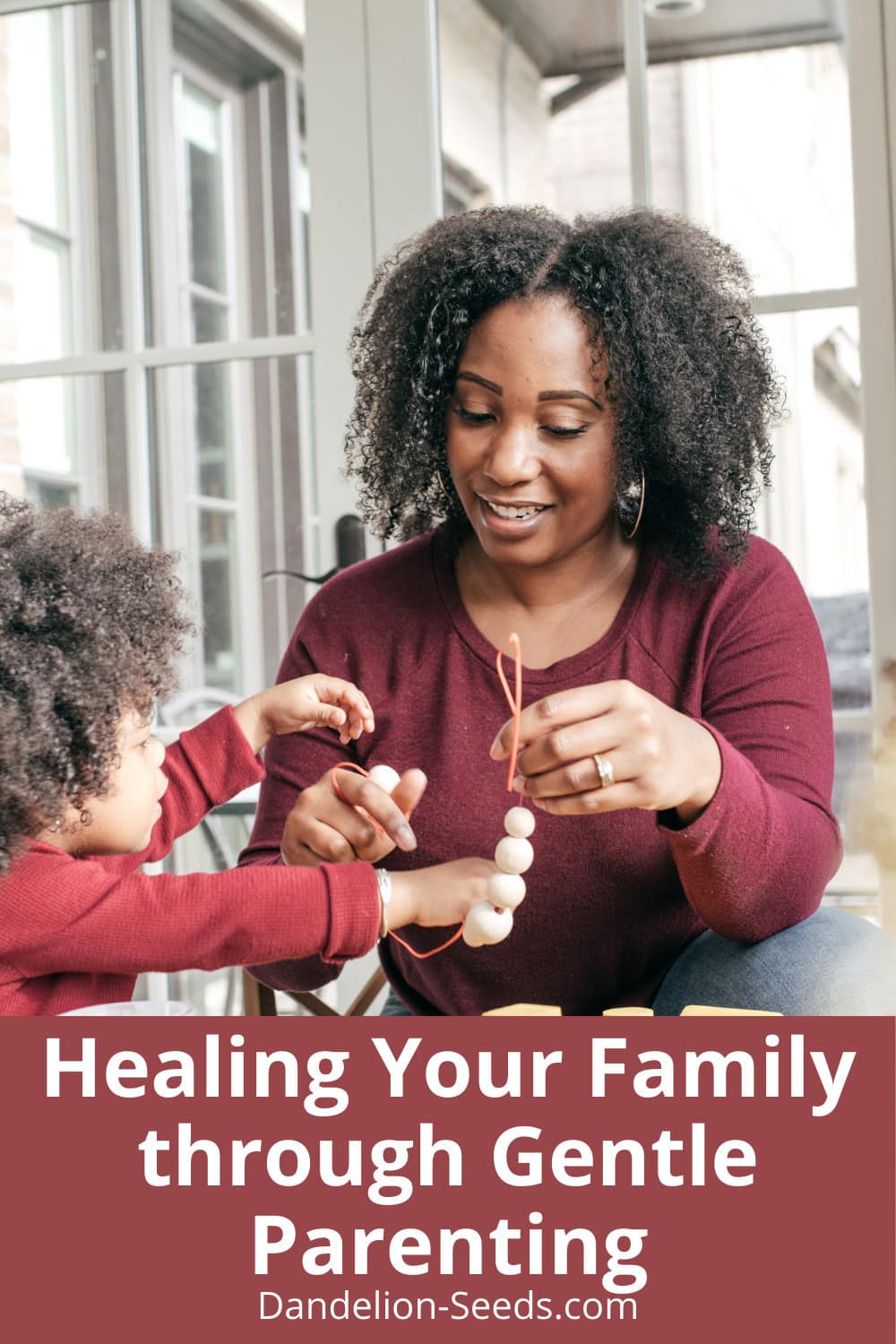
At the opposite end of the parenting spectrum is permissive parenting, where the adult embodies little to no competent leadership. They may be more concerned about pleasing the child than leading the child with loving boundaries. In fact, healthy boundaries may be severely lacking or missing entirely. This approach, too -- while on the surface may seem gentle and respectful -- harms the child in the long run. (source)
A lack of healthy boundaries may lead kids to look beyond their family to find guidance wherever they can get it -- peers, social media, or really anyone who's willing to tell them the "rules of life." The risk, of course, is that these "rules" may be highly dangerous to the child.
Although parenting books won't recommend this style, parents who fail to use any form of discipline, including positive and respectful discipline, may feel that their family is conflict-free. They may believe that a family who doesn't talk about conflict is happy.
This false assumption poses two problems:
Related mini-course: Anger Management for Kids: Helpful Strategies for Before, During & After the Upset
These parenting styles are not at all helpful in supporting the child's development. To the contrary, these principles directly oppose the spirit of gentle parenting.
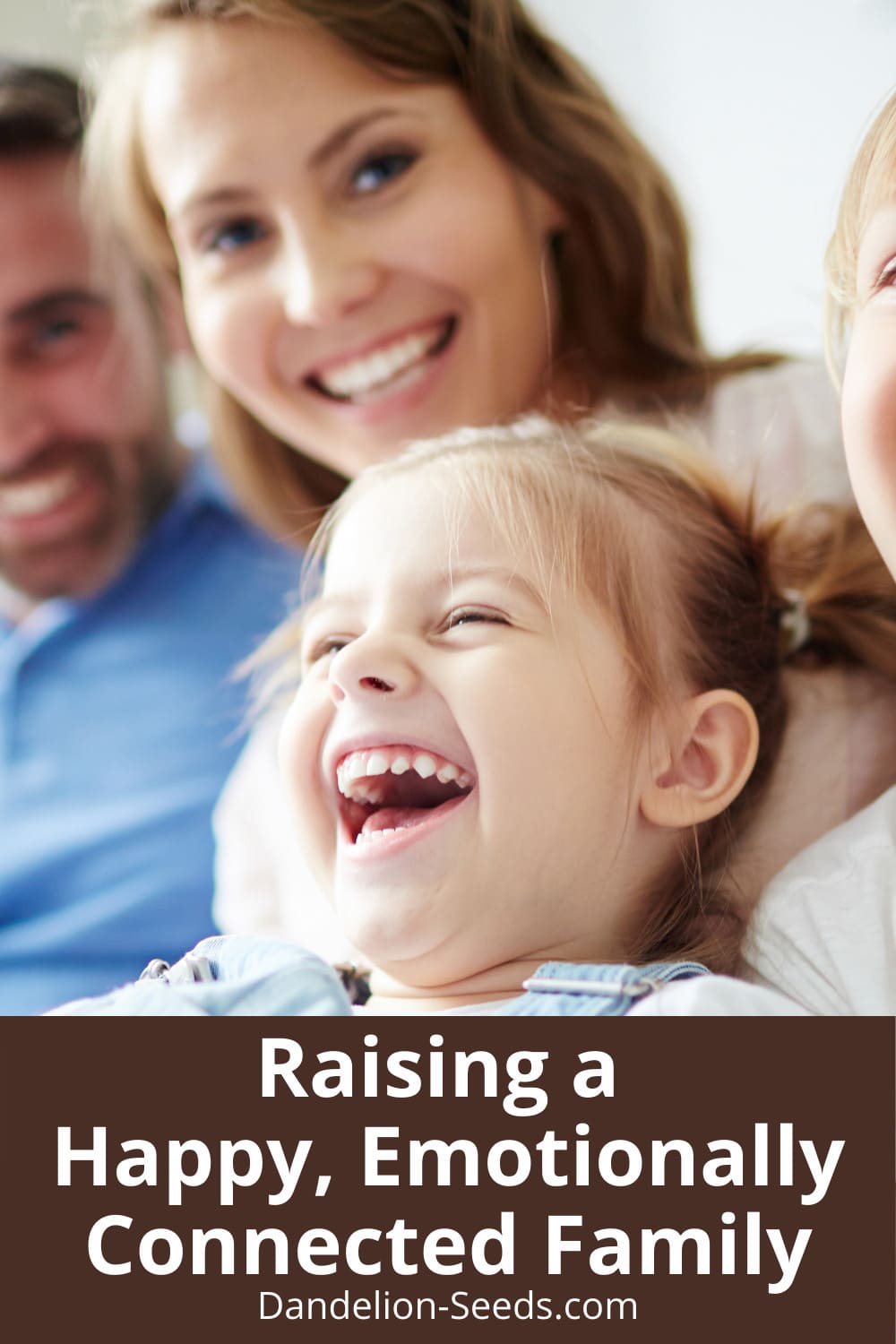
Gentle parenting, as done within the context of authoritative parenting and widely agreed to be the most beneficial for children, is neither authoritarian nor permissive (source).
It's based on connection.
The adult knows that they can't simply parent the child's behavior, even though that's what they live with outwardly. Rather, the child's behavior is always a reflection of what's going on emotionally for them. If the child is "doing well," they're likely thriving inside. If the child is exhibiting troubling or problematic behavior, the child is struggling inside.
It's rather like when a car breaks down: we don't just take it to a car wash to make it look better. We need to get under the hood and repair what's on the inside.
Gentle parenting is parenting from the inside out. It's about going beneath the surface and seeing the child fully.
It's about parent and child doing well for one another because they want to; because the foundation of their very co-existence is mutual respect and trust.

Some people assume that gentle parenting is the same as attachment parenting. Although there certainly can be varying degrees of overlap with attachment parenting, the real answer to whether they're synonymous is this: it depends.
Attachment parenting, a term originally coined by Dr. William Sears, is a gentle parenting style that encompasses the following parenting methods geared towards parenting small children. They're sometimes called the seven B's (source). Each is scientifically supported as noted below.
This refers to immediate and continuous contact between parent and child directly after birth. (scientific validation)
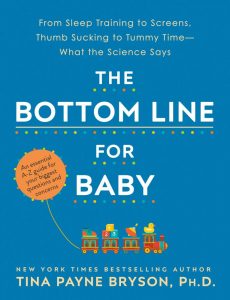
Here, the mother provides the most natural and most readily available solution to respond to baby's hunger. (scientific validation)
This means keeping baby close in a soft carrier, usually keeping the wearer's hands free. It's a key to having a calm and happy baby, and helps form a secure attachment between parent and child. (scientific validation)
The AAP recommends safe room sharing where a healthy and sober parent or parents sleep near baby throughout the first year of life. (scientific validation)
Dr. Sears suggests that baby will never cry for "no reason" and their emotions are every bit as valid as adults'. It's the parent's job to respond with presence, respect, and patience. (scientific validation)
This guidance is to avoid any so-called parenting expert who gives or sells advice to make baby sleep. Sleep comes naturally as part of development rather than training. Sears advocates that we should listen and respond to baby's cues day and night. (scientific validation)
Here, we accept that mothers and fathers still matter; there's no need to lose a sense of self or jeopardize the relationship by devoting all our energy to our kids. (scientific validation)
Individually and collectively, research shows that each of these tools can have positive outcomes for children.
A gentle parent doesn't have to do all these things to love their children and raise wonderful, securely attached kids. Let's look at an example:
A single mom is raising twin baby girls. She loves them dearly. She's also a nurse who works third shift. Her children spend their nights at home with Grandma. They attend daycare a few hours each day while mom sleeps. When mom is with her children, she's present, loving, and fully devoted to them. However, she can't room share with them at night because she's working, and Grandma has said no to a shared room. Although mom pumps milk when she can, she usually supplements with formula. When she's off work, she's too tired to baby wear, although she does hold her babies often.
Can this woman form a secure attachment with her children? Absolutely. Parents can embody gentle parenting without it mirroring Sears' definition.
Although it sounds simple (albeit, perhaps, a bit perplexing), what matters most is that she delights in her children, and that they feel her delight (source). Her presence, kindness, and empathy for their feelings when they're together show her girls the depth of her love.
She's mindful of their time together and, most of the time, stays calm and peaceful despite her own stressors. She models self-care by taking them for walks and spending time in nature. She models gentle parenting in every possible interaction with them.
Conversely, if a parent is going through the motions of attachment parenting but is emotionally spent and has no joy to offer their family, this is not the recipe for raising children who feel particularly special.
Gentle parenting isn't just about making children feel special, of course. Much more, research points to it being about open and ongoing communication that nurtures the relationship between parent and child.
All that said, if the parent chooses behaviour in line with the principles of attachment parenting and they feel delight in this parenting style, then it's a bonus.
You likely noticed that all the components of attachment parenting above apply to young children, where secure attachment is established (or not) in the first years of life (source).
What about older kids? Certainly gentle parenting doesn't end there. Indeed, it doesn't.
Gentle parenting isn't just for babies, of course. What does it look like for older children, as well? These benchmarks help us know for sure that we're using the real deal.
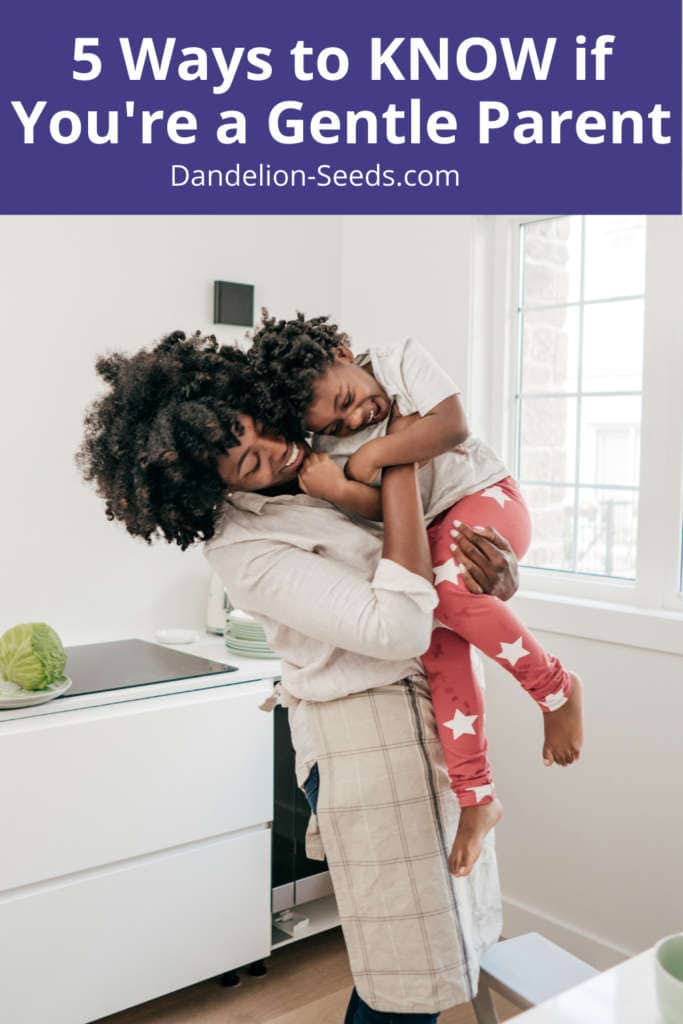
Gentle parenting incorporates the child's perspective when setting "rules" for the family. These rules are different than those of
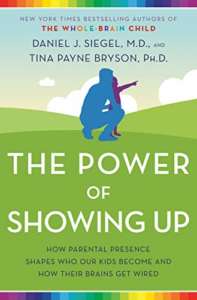
the authoritarian parent, however: they're not there to control the child.
Gentle parenting isn't about sticker charts as a key to cooperation around boundaries. Gentle parenting isn't defined by rewards and other extrinsic motivation any more than it is by punishments. Instead, the adult will listen to the child, respect their perspective, and work to find win/win scenarios and boundaries that are mutually acceptable.
Gentle parenting models these attributes, even when parents are struggling or facing their children's challenging behaviour. Parents view their kids as allies. Problems are external issues to be solved, rather than internal issues that reflect the state of the relationship.
When problems arise, gentle parents pause and ask themselves, "How do I want my child to see me respond?" They realize that co-regulation is a powerful tool in gentle parenting and a sign of a healthy bond. Once parents and children find their calm together, they can create mutually acceptable solutions.
Adults often lean on play and connection as teaching tools rather than any form of punishment, although certain consequences do exist in gentle parenting.
Gentle parents embody not only the "Golden Rule" -- treating others as they'd like to be treated -- but also another version, the "Platinum Rule" -- do to others what they'd want done to them.
The gentle parent realizes that it's much healthier for a child to release their feelings than keep them pent up inside. Although not all behavior is acceptable, gentle parenting works to encourage healthy expression of emotions.
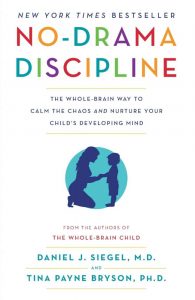
Gentle parents encourage children to share what they feel, even if they're upset with each other -- and even if it's sometimes uncomfortable. Here, it's emotionally safe to do so because they work to genuinely understand the other's perspective.
It's helpful for many parents to set intentions about the specific ways they want to model respect for their kids. Some begin each morning with a prayer or meditation about specifically how they want to be peaceful that day. This approach can help tremendously.
The final important component to note about gentle parenting is that no person in the world is perfect. Everyone makes mistakes. When gentle parents mess up, they model healthy repair and work to make things right with their children. In doing so, they raise children who know that modeling accountability for one's actions, and allowing grace for mistakes, is an integral part of healthy connections.
Although gentle parenting may feel daunting to those who haven't practiced it before, please know that it's not a race to perfection. No one would expect that of you. Just take that one next step. As they say, Rome wasn't built in a day (and no one's asking you to build Rome).
Choose one small way to connect with your child, and you're already on your way.
Please allow me to be blunt: sometimes children drive their parents batty. Of course, sometimes parents drive their children "'round the bend," too -- so all is fair in love and parenting. What should parents do, though, when their kids' batty-making behavior requires a response of some sort, and they want to address their children using non-punitive, positive discipline?
The solution often rests in natural and logical consequences.
What natural consequences and logical consequences have in common is that they peacefully teach children their so-called life lessons. That's the essence of peaceful discipline: teaching that does no harm.
When used correctly, natural and logical consequences are valuable teaching tools. Examples of both are below.
An important distinction to make, of course, is to know that both natural and logical consequences are different from boundaries. Ideally, boundaries are the loving and fair guidelines that grown-ups establish to help ensure their children's safety, health, and social-emotional growth.
Natural and logical consequences are not punishments; they're simply the effects of choices. Think of consequences as non-punitive teachers.
Consequences can be positive or negative. For example, the consequence of a child treating a sibling well is usually a peaceful relationship. The consequence of a child mistreating a sibling is usually conflict.
Related mini-course: Setting and Enforcing Healthy Boundaries for Kids; Related expert interview: Dr. Laura Markham of Aha! Parenting Discusses Sibling Rivalry
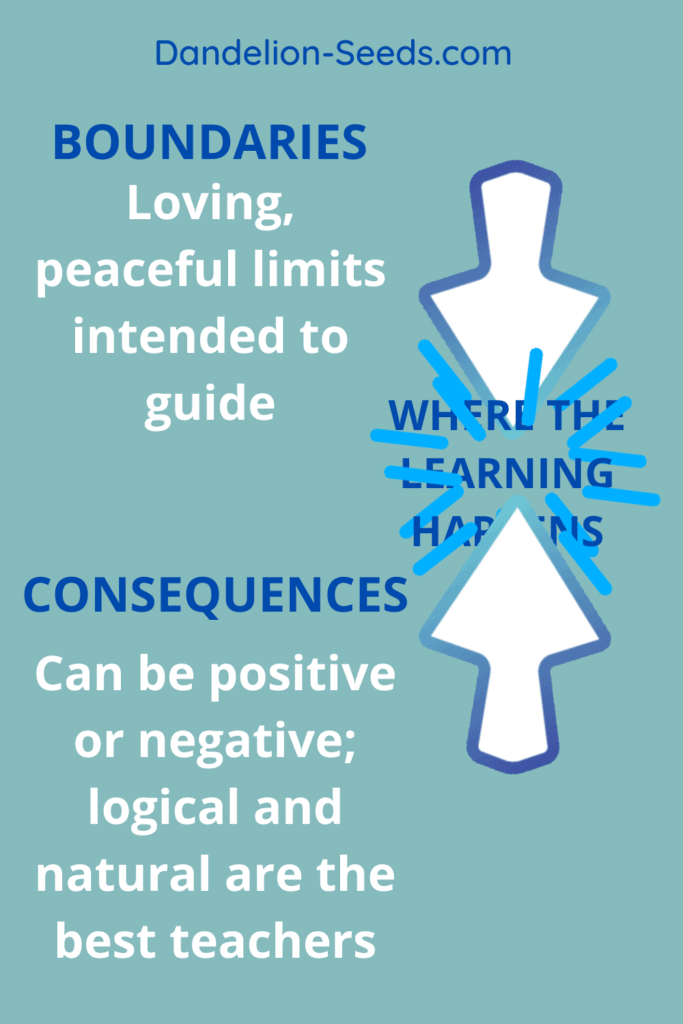
The place where boundaries and consequences meet is often where learning happens best.
Example: A child says he "doesn't care" that he's left his favorite toy truck outside in the driveway. The parent warns the child that the toy might break or be stolen if he leaves it there overnight. Still, the child refuses to retrieve it.
Sure enough, the next morning, the parent backs out of the garage to take the child to school and has completely forgotten about the toy truck. The car rolls over the truck and they hear the dreaded "crunch."
The natural consequence is that no one can fix the truck and the child is sad.
The broken truck and the sadness of the child are enough of a teacher that the child doesn't need further punishment for having left the truck outside. The natural consequence here is enough.
Likely result: Next time, when the adult says to the child, "Please move your toys off the driveway," the child will be more inclined to remember the broken truck and consider his options more carefully. If he chooses to move his toys, that will likely result in a positive natural consequence, instead -- nothing breaks. He'll learn greater responsibility naturally.
Just like natural consequences, logical consequences are not punishment. Still, they're a very effective teacher.
Example: A child who struggles with screen time wants to keep playing her online game even though she's exceeded the daily screen limit to which she and her parents had previously agreed. Perhaps she's sneaking away from the dinner table to "check in," or she's feigning sleep and staying up late chatting online with friends.
Her parents are aware of her "misbehavior," yet they know punishment will only make her want to hide her behavior further (source). Resultantly, her family wants solutions that help their child feel seen and validated, while still holding the agreed-upon boundary.
Although natural consequences might include letting her stay online and face the repercussions of being overtired at school the next day, her mom and dad realize that logical consequences might be in order.
It's not that logical consequences are harsher or "better" teachers, but perhaps there are safety or logistical reasons that she shouldn't be exhausted at school.
Logical consequences might include allowing her to use the device at will, but requiring that she give it to her parents for safekeeping at an agreed-upon time.
Likely result: She'll find a way to balance her time more effectively.
As an aside, another option worth considering is to see if it's time to revisit her daily screen limit. Perhaps the limit wasn't realistic and genuinely warrants another look.
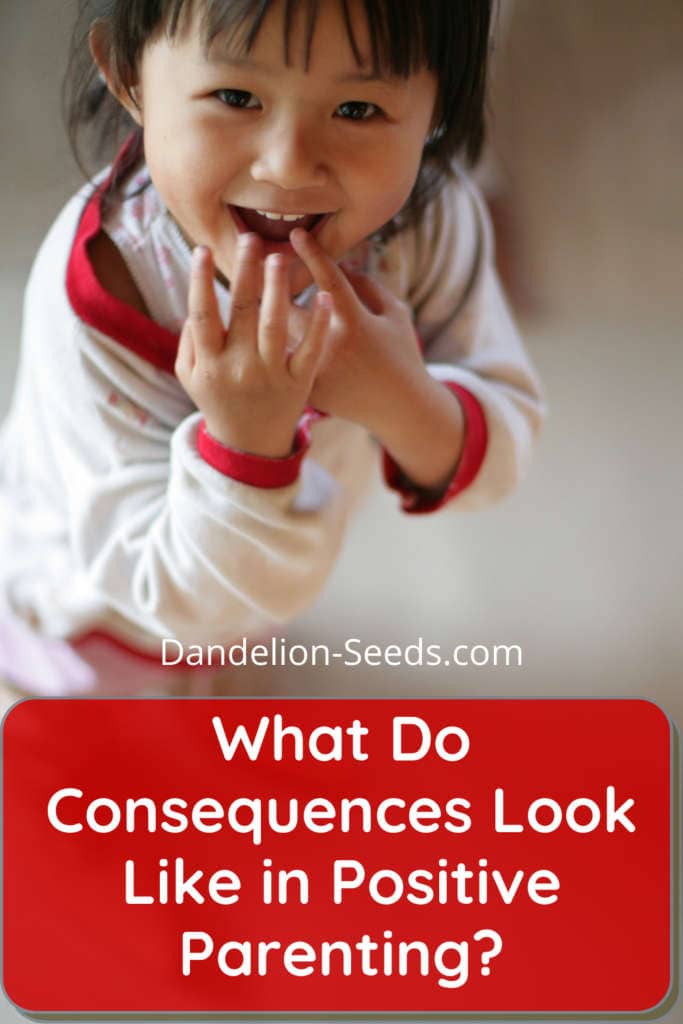
It's normal and developmentally healthy for children to push back on, and question, the boundaries their parents establish. In fact, it behooves adults to let children practice pushing back. It's much safer for a child to practice boundary-pushing with a trusted adult than with peers, for example. In some cases, negotiation is a positive.
Still, children might have big feelings when grown-ups stand firm on healthy boundaries. If the boundaries are reasonable and fair, the parent can uphold them confidently and with compassion.
Gentle, respectful parenting isn't boundary-less parenting.
That said, the child should perceive no "vibe" of punishment with natural or logical consequences. Limits can and should be loving. Ideally, the parent will have collaborated with the child to agree on mutually agreeable behavior before a situation has escalated.
The key to this peaceful approach, of course, is being proactive. In the example of the toy truck, the parent might've used play to engage the child in collaborative problem-solving rather than only leaning on a factual warning that something might damage the truck.
Playful parenting, particularly with younger kids, removes the vast majority of potential conflict.
Related mini-courses: Holding Space for Big Feelings, Should We Talk to Kids about "Good" and "Bad" Choices?, and Playful Parenting
A parenting approach that focuses too much on parental control and punishment is called authoritarian parenting. It's linked to a host of problems as the child grows older.
The negative side effects to this type of parenting include: Children are aggressive, but can also be socially inept...Children in these families have poor self-esteem, are poor judges of character and will rebel against authority figures when they are older. Children will model the behavior shown to them by their parents while with their peers and as future parents themselves. Children rarely learn to think on their own. Children have a difficult time managing their anger and are very resentful. (source)
True, not all punitive parenting comes from authoritarian parenting. It's a very common combination, however.
If a child feels the parent's punitive "teaching" did nothing more than hurt their feelings and/or the relationship, the adult-driven "consequence" is not likely to be an effective teacher. It only teaches the child that the adult has control over them. The consequence does not get to the root cause of the problem.
If anything, some children will learn to hide their misbehavior better due to fear of being caught, rather than change their actions.
The present study compared the lie-telling behavior of 3- and 4-year-old West African children...from either a punitive or a non-punitive school. Children were told not to peek at a toy when left alone in a room. Most children could not resist the temptation and peeked at the toy. When the experimenter asked them if they had peeked, the majority of the punitive school peekers lied about peeking at the toy while significantly fewer non-punitive school children did so. The punitive school children were better able to maintain their deception than non-punitive school children when answering follow-up questions. Thus, a punitive environment not only fosters increased dishonesty but also children’s abilities to lie to conceal their transgressions. (source)
Even if they can walk, talk, and tie their own shoes, children are not miniature adults and can't be expected to act as such. Indeed, they may sometimes exhibit the emotional maturity to make grown-ups believe their brains are working like adults' do, but that's simply not the case.
Development isn't linear. It will take a child until roughly the age of 25 for their brain to work as an adult's does (source).
In the meantime, they'll often act in ways that seem to be attention-seeking, when really they're seeking connection to those they hold dear.
Furthermore, sometimes they'll act with empathy and seem to convey a deep understanding of others' perspectives, while other times, they'll seem "selfish."
As it turns out, this "focus on the self" is exactly what helped increase a child's odds of survival from an evolutionary perspective. It's a healthy stage of growing up. We can't make kids grow up faster, but we can support optimal brain development and gently help nurture emotional intelligence.
Learning about child development can help grown-ups manage their expectations about what's normal -- and parent accordingly.
If an adult thinks "connection is not an appropriate way to teach," these counterpoints are worth considering:
Further, when children grow older and need to navigate relationships with their teachers, in school with other students, and eventually in the workplace, will their parents have modeled how to address conflict peacefully or through force?
Kids are no different from grown-ups in these respects. Grown-ups can effectively teach responsibility, how to learn from mistakes, and other important lessons using non-punitive strategies. Causing emotional or physical pain to teach simply isn't helpful.
A so-called "strong willed" child is often named as such because of power struggles with the parent. Indeed, kids who seem to be especially stubborn can legitimately be frustrating for their grown-ups!
Interestingly, when kids are strong willed, many adults respond by digging in their heels and attempting to make their children less strong willed. From the child's perspective, however, the grown-up is just as strong willed as they are.
That's the classic recipe for a power struggle.
The remedy is not to be stronger than the child in an eternal tug-of-war until the parent "wins," but rather, to teach in ways that have only positive consequences.
Oftentimes, if a child is strong willed, the solution is to find a new way to communicate with that child. Natural and logical consequences can be particularly effective teachers for these kids. And bonus, they're often much less work for the grown-up!
Example: Sometimes grown-ups get "stuck" in their discipline pattern, such as yelling. If yelling isn't working, the child doesn't need the grown-up to yell even louder. Volume isn't the issue. Perhaps slowing down and peacefully getting on the child's level would get the child's attention better. If a "solution" isn't working, it's not the right solution!
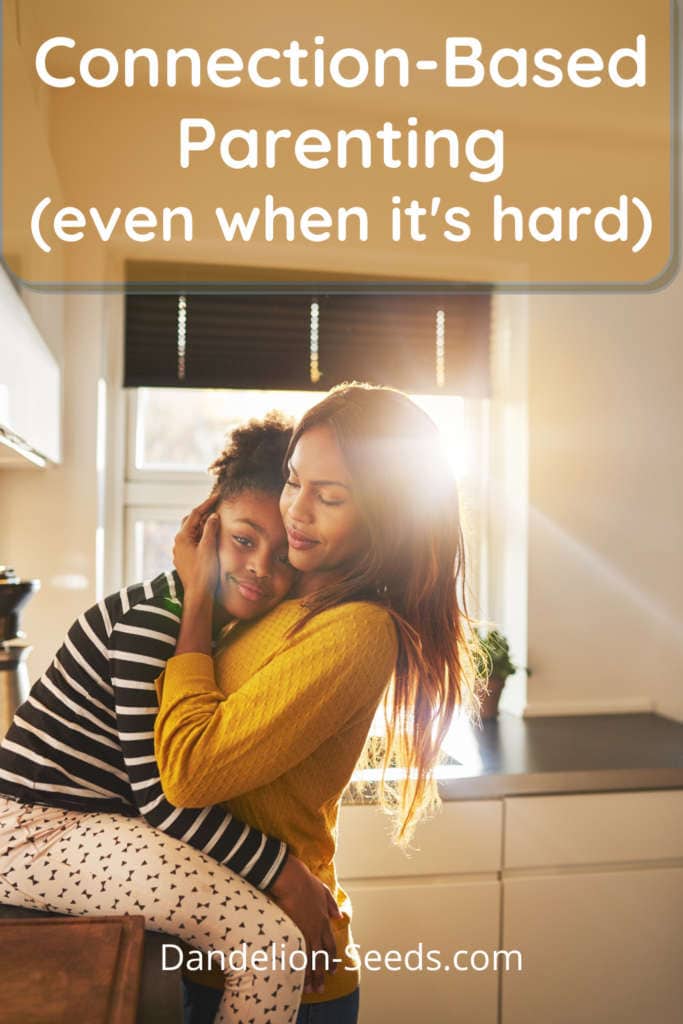
Below are some drawbacks of common punitive approaches.
Unless the toy, privilege, or device is directly the source of the child's problematic behavior, removing these items only teaches the child that the adult has the power to control them.
In the examples of natural and logical consequences above, taking away cartoons, for instance, from the child who left his truck outside would not be an effective teacher.
This punishment is not related to the child's ability to understand the repercussions of his actions. It's like telling a child who's been eating apples that he can't have oranges anymore.
Sending a child away to process their feelings or "think about what they've done" rarely results in a child actually thinking about what they've done. More likely, they feel emotionally unsupported and unsure of what to do in the future when the triggering situation comes up again. It's as if they're given a destination with no map of how to reach it.

Indeed, there's a big difference between a punitive time-out and a calm-down corner for co-regulation. One is helpful for teaching; the other drives emotional distance.
Spanking is associated with a host of significant problems, both short-term and long-term, for the child's development (source). Although some parents claim it's a good "teacher" and is helpful for changing behavior, any change in the child's behavior comes from fear.
Even if the parent spanks only after their anger has passed, or makes it what they perceive to be a "mild" spanking, a child's nervous system is incapable of telling the difference.
Spanking a young child breaks trust and may hinder development in the same ways that ever stronger forms of abuse do (source). Further, spanking results in lower IQ (source), and may even contribute to long-term behavioral and mental health problems (source). That's hardly a "win."
Bribes and rewards are problematic in their own right. They can result in a child who complies only when bribed or rewarded, thereby damaging their intrinsic motivation.
It's understandable. Even adults learn quite quickly to hold out for the "prize" if given the choice between having one and not. It's not manipulation; it's human nature.
Threats are, like punishments, a component of fear-based parenting. No one wants a relationship based on fear of what might be taken away, up to and including a parent's affection.
Even smaller and seemingly more benign threats, such as "If you don't go to bed now, you won't get to watch your favorite show tomorrow," can create anxiety (source). Anxiety-ridden children often grow into anxiety-ridden grown-ups.
In this example, a better alternative would be, "It's bedtime, and I want to make sure you feel rested and happy tomorrow. Let's get cozy and relax together." The focus is on what the child gains, not on what they risk losing. Again, the grown-up can uphold the limit with compassion and empathy.
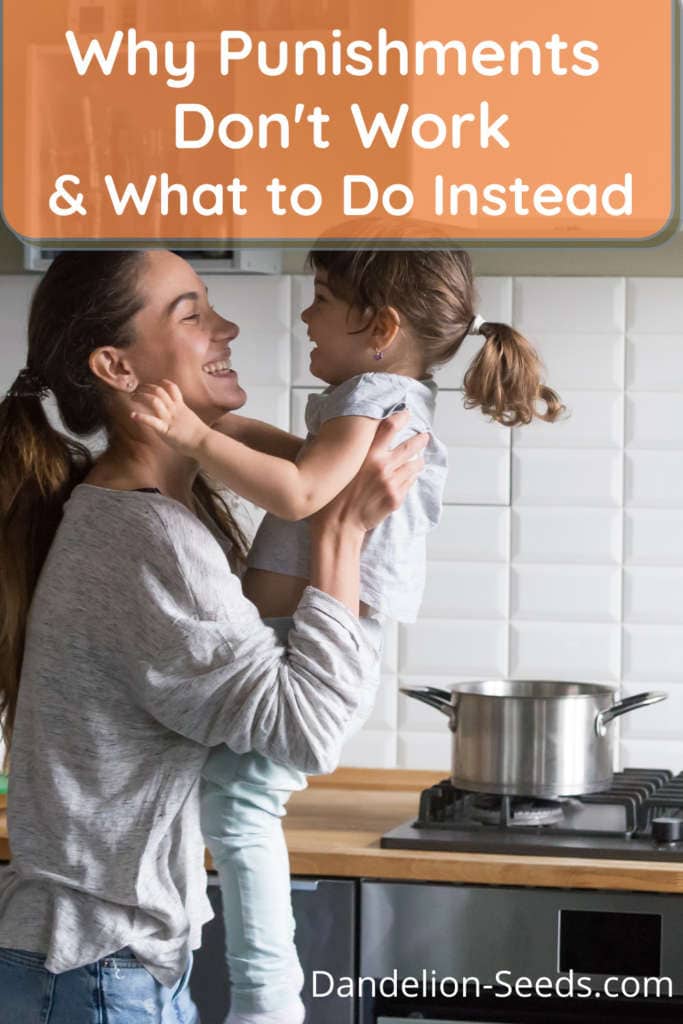
To be clear, both natural and logical consequences are better than punitive discipline. Both can address misbehavior in ways that help children learn how to get along well in the world.
Children can learn responsibility and self-discipline without being punished. The normal effects of living life and learning from experiences can be wonderful teachers.
While it's true that children do need healthy boundaries, those boundaries can guide gently and respectfully. When children feel they have a voice, and that their life experience teaches them what they need to know, it's a much more peaceful existence.
Positive consequences of this peaceful existence often include a child's natural desire to cooperate more easily because they feel more empowered, and less controlled, overall. Kids are wired for connection with their caregivers, just as are their caregivers to them. When everyone's getting along, they want to do well for each other.
Many people think of spanking, also known as corporal punishment, as being an "old fashioned" way for parents to discipline their children. Perhaps surprisingly, however, it's still much more common than many realize.
Despite guidance against corporal punishment from the American Academy of Pediatrics, half of parents in the United States have used spanking to address perceived behavior problems within the past year. One-third have used corporal punishment within the past week (source). Rather than being an outdated form of physical discipline, it seems to be alive and well.
What's going on? Doesn't "discipline" mean to teach, and isn't teaching supposed to be benevolent?
Before I say anything further, I want you to know this: if you use spanking as a form of discipline for your kids, I'm not here to judge you. I'm here to help you find another way, with your consent. If you need to, take time to process this information. Spanking can legitimately be a hard habit to break.
My goal isn't to shame you, but to show you a path forward, if you're willing. I acknowledge that almost all parents truly and deeply love their children.
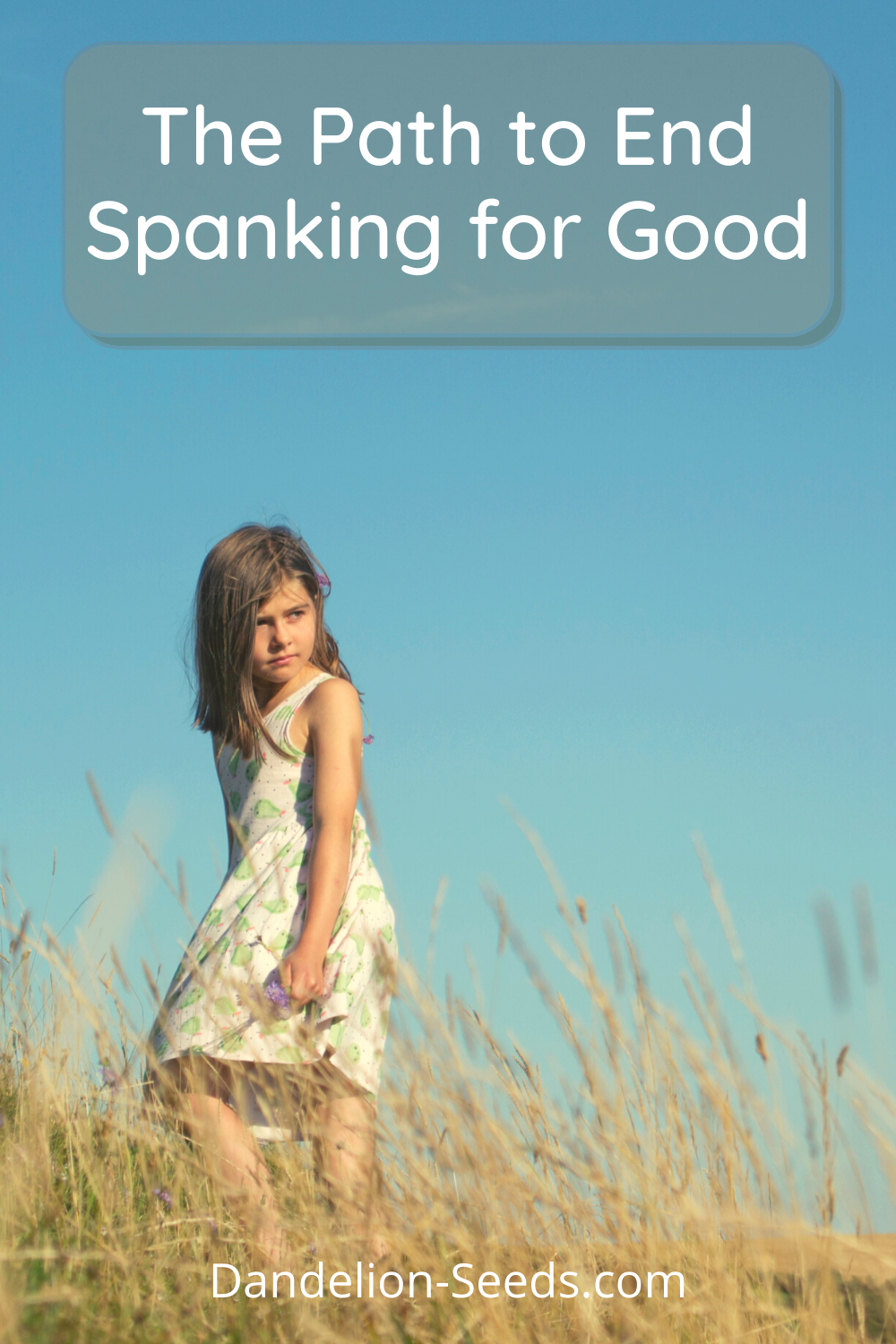
This article covers why people spank their children -- and what to do about it.
For some parents, spanking was one of the consequences they endured as children. As with many patterns they learned in childhood, they simply didn't learn another way. Perhaps they rarely experienced positive reinforcement, connection-based parenting, and discipline strategies that are in line with what we now know best supports child development.
More compelling, perhaps, is that they believe spanking "works." After all, it can change behavior. Isn't changed behavior what we want?
In The Body Keeps the Score (afflinks), Bessel van der Kolk discusses the role of intergenerational trauma on the patterns and choices we make in our own lives. Some of these patterns "show up" without much conscious effort on our part; we simply do what we do because it's what our brains have learned to do as an automatic or near-automatic response.
Change and healing are possible, however.

The tricky part is that the adult children who were spanked by their parents when they were little, still craved connection with their parents despite the spankings. They're hardwired to stick up for their parents because, in addition being the source of spanking, those same parents also took care of them and likely truly loved them.
By virtue of being raised by the person who spanked them and wanting an ongoing connection, they often justify the adult's behavior. Perhaps now, as an adult themselves, they say spanking taught them something useful, or believe that they somehow deserved physical punishment.
They may believe that, at least some of the time, they were too "naughty" for anything less than spanking. Further, they may believe that the world is tough, so it's important to have been "toughened up" by their parents -- and they hold onto that belief for their children.
Indeed, it can be confusing for a growing child's nervous system to be both hurt and protected by the same person. Among other consequences, it can result in what's called an insecure attachment (source); in more extreme cases, it can cause trauma bonding (source). The child will work to "close the gap" and be more connected to those they love, even if there's a steep price for that connection (source 1, source 2).
In short, they're willing to look away from the short- and long-term pain that corporal punishment caused in order to emotionally save the relationship, no matter the impact on their sense of self-worth as a child.
Additionally, many parents feel awful after spanking their children. It's a no-win situation, but they often feel they have no choice.
Research shows that when parents work to make sense of their own childhood, otherwise known as their attachment history -- and form what's called a coherent narrative around it -- they can better separate the behavior of their own parents from the behavior they want to model with their children. A coherent narrative simply means the ability to tell a story that makes sense (here's how it works).
Although forming a coherent narrative can reach far beyond spanking (or, alternatively, not include corporal punishment all), it certainly can be part of the healing process for people who've endured corporal punishment. They can learn that spanking is not the only way, and that healing is possible for them and for their children.
Fortunately for the relationship, adults who choose to give up spanking don't necessarily have to vilify their own caregivers in the process. With empathy, they can separate the act of having been spanked from the human they loved who inflicted the action. They can separate the painful parts of their upbringing from the joyful ones, and not holistically judge their caregivers' discipline strategies as a reflection of the relationship overall.
Part of this work may include what's referred to as "re-parenting" themselves. That entails finding gentleness and compassion for their inner child. It can involve seeing their younger self as worthy of love and support despite the circumstances. It embraces that child as having done the best they could with the emotional tools they had at the time. It's a softening themselves to receive unconditional love.

Indeed, when adults who were spanked do this work, it can sometimes make waves between their parents and them. It may cause resentment; it may bring up pain from childhood. Adults recovering from corporal punishment often benefit from receiving professional support. They may be able to find ways to love their own parents as much as they ever did, yet have a healthier mental framework around the discipline that was used when they were little.
Choosing a new path does not have to mean a permanent rupture in the family. Healing is absolutely possible.
With that support, parents can decide that their history does not necessarily need to become their destiny with their own children. They can choose a new parenting path without being untrue to their roots unless they consciously choose to depart from them. They can, in fact, view their "roots" as still being intact, but choose to grow their parenting choices along a new branch of the same otherwise loving tree.
Some parents may be triggered by what they perceive as their child's attention-seeking behavior and not realizing that every behavior, even suboptimal behavior, is simply the child's best attempt to connect with them. They may not understand that even when, behaviorally, it looks nothing like a "best" attempt, the child is simply doing what they can -- even if to get negative attention.
With the best of underlying intentions, kids will do almost anything to help their parents "see" them.
Furthermore, some adults are of the opinion that whenever "nothing else works" to address their kids' behavior, their only option is to become more harsh rather than more gentle. It's a novel idea to them that the most direct way to lead a child, and naturally engage them in cooperative behavior, is through connection. It can seem counterintuitive especially when they're mad. Why would they want to "reward" misbehavior?
Sometimes, this belief system stems from the idea that children aren't "whole" or worthy of respect until they're older; that they must earn respect by learning and living up to adults' ideals.
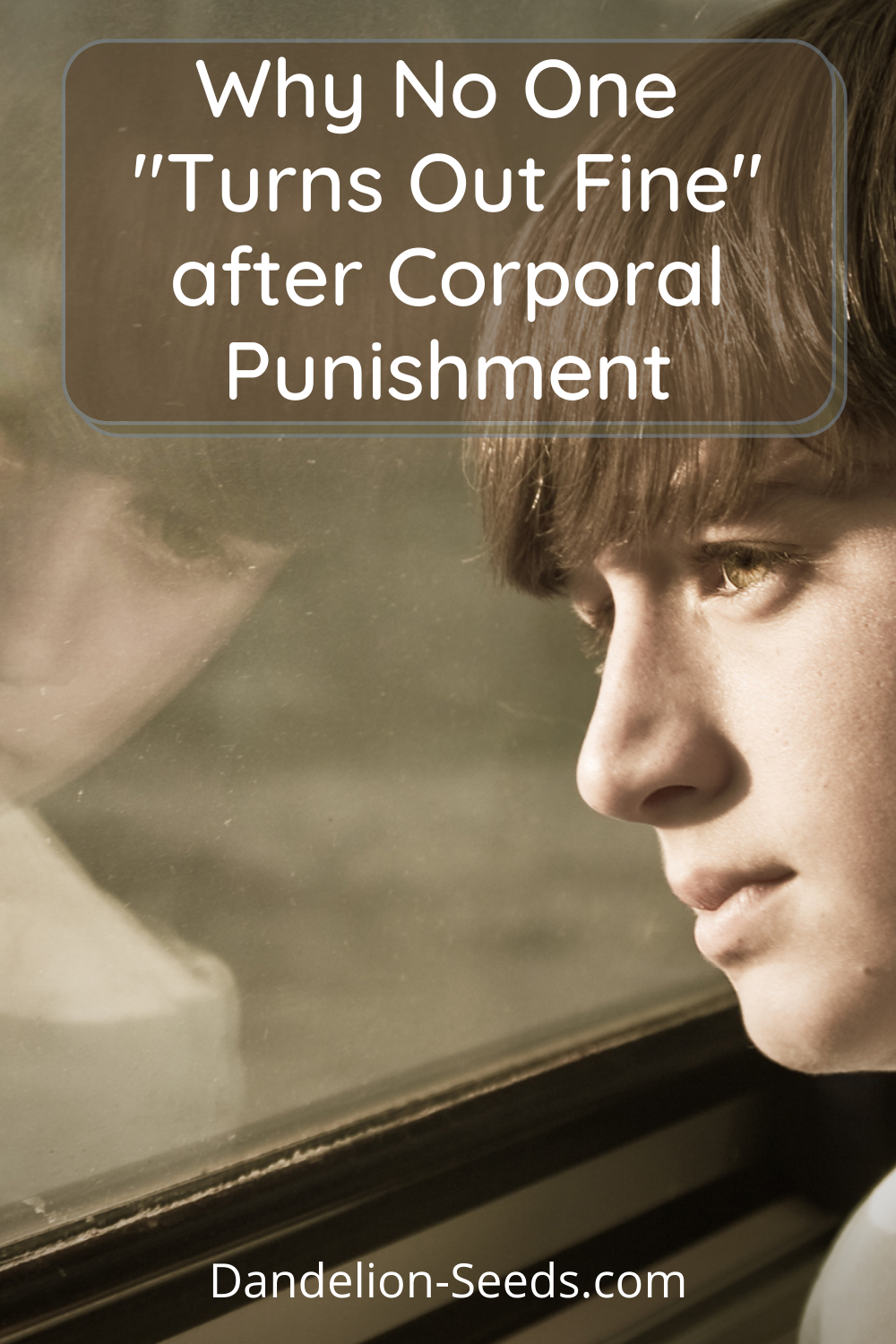
It can be an incredible paradigm shift for parents to see their children as being inherently worthy of respect. When this is their point of view, it's often, once again, linked to beliefs from their family of origin. It can be beneficial to consider questions like these:
As for the belief that "nothing else besides spanking works," it's worth exploring whether the parent has genuinely attempted connection-based positive parenting approaches. Many children thrive and cooperate best with playful parenting, for example. Other children need other tools and guidance, such as storytelling and more time in "time-in" rather than "time-out" to co-regulate.
Despite what some people think, consequences do exist in peaceful parenting. The difference is that, while still being effective, these consequences do no harm.
Physical punishment, including spanking, does not need to be anywhere in the picture; it is not a "last resort" and doesn't have to be. There's always another, gentler option.
See all positive parenting courses here
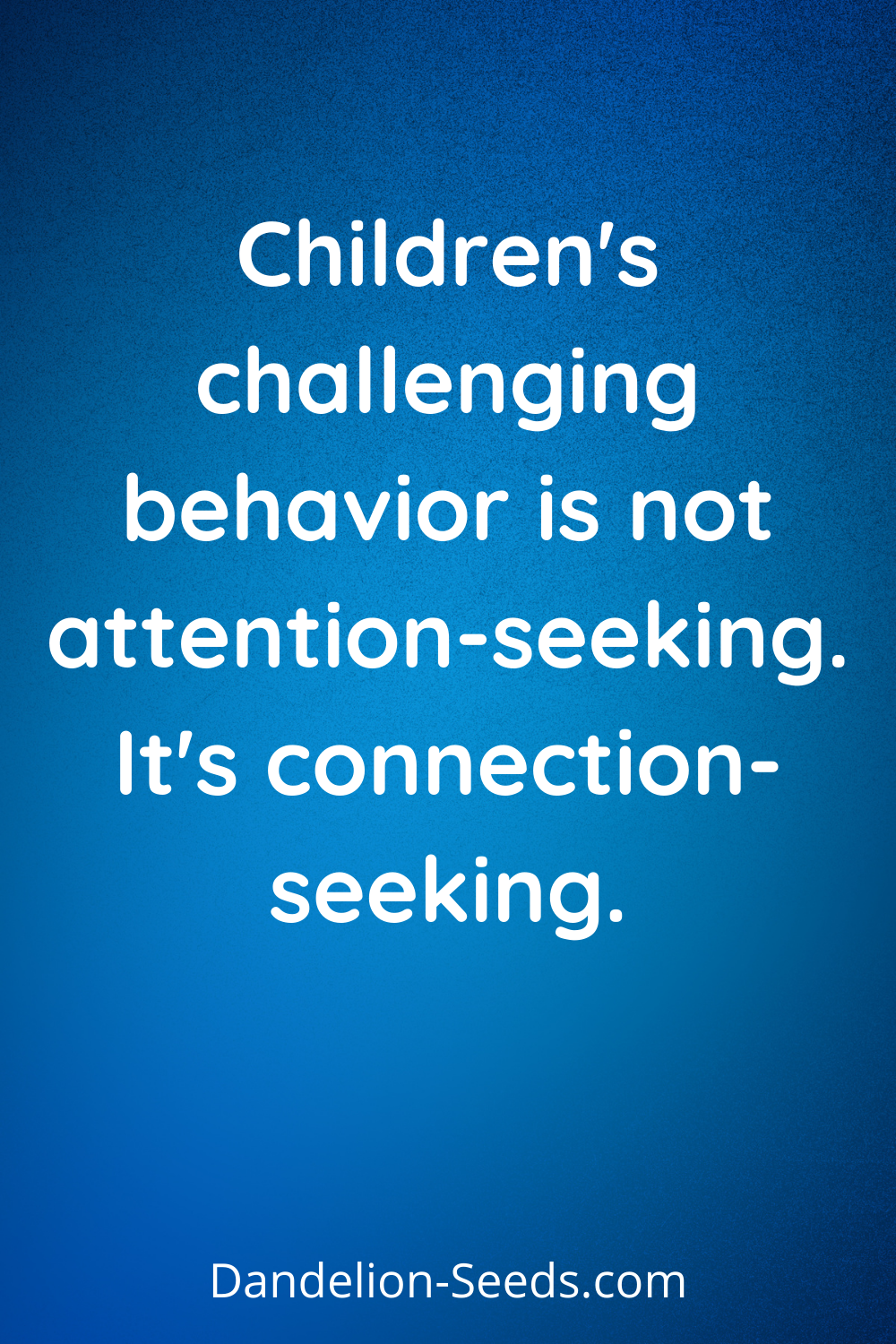
To be sure, it can be life changing for parents to learn about child development. Children aren't miniature adults; it'll take their brains until approximately age 25 to develop the reasoning and decision-making skills that most adults have (source). As such, they'll get plenty "wrong" until their brains are developmentally ready to meet adult-level expectations.
Understanding what's developmentally normal can be a path to incredible healing for both parent and child.
Some other religions do condone spanking, but many don't. The focus on Christianity in this article is because 78% of the U.S. population identifies as Christian (source).
If you've heard, "Spare the rod, spoil the child," odds are good that you (like many parents) attribute that quote to the Bible.
It didn't come from the Bible. It came from a 17th-century writer named Samuel Butler in a work called Hudibras. Interestingly and perhaps even scandalously, the quote has nothing to do with spanking a child. It's spoken by a man who wants his lover to engage in a certain type of sexual play.
For older children, roughly age 12 and above, it was recommended only in very specific circumstances as governed by the law at the time, not by Biblical teaching.
Samuel Martin (quite different from Samuel Butler) discusses spanking in Biblical times, and the specifics of how Christian parenting calls Christians to act towards their children in modern times. Watch his free expert interview.
References to "the rod" in the Bible are worth exploring in and of themselves. If we harken back to the days of shepherds using rods to guide their sheep, there's a critical distinction in how they use their rods. They did not use them to hit or harm their sheep. They used them to gently guide their sheep; to keep them from wandering off and getting hurt. That's an incredible paradigm shift.
As an example of where the rod is mentioned, in Proverbs 13:24, the Bible says, "Those who spare the rod of discipline hate their children. Those who love their children care enough to discipline them." Another word worth defining here is "discipline." It means to teach, not to punish. Even Jesus' disciples (same root word as discipline) were responsible for teaching. The "rod" (gentle guidance) was used to "discipline" (to teach).
They did not bring people to Jesus by being his "punishers" around the world. That certainly would not have been an effective approach!
Gentle guidance -- discipline -- is what modern-day parents, Christian or otherwise, would call healthy and loving boundaries. That's a far cry from spanking. Spanking and physical punishment of young children has no place in Biblical parenting, and the Bible itself confirms that. Christianity and spanking should be mutually exclusive.

Knowing that such a large percentage of the U.S. identifies as Christian, this section is written to encourage Christians. If you're not a Christian but know Christians who are using their faith to justify spanking, I invite you to have an open discussion with them and help change the narrative around corporal punishment.
The central theme of the Bible, and particularly of the New Testament, is forgiveness through Jesus. In fact, modeling Christ's loving compassion and forgiveness is literally the perfect model to follow for parenting.
If you will, look away from the "Christians" causing pain in any form, and towards those who are living gently and lovingly, as Jesus did.

Some verses to study and reflect on for parenting include these, among others:
If more Christians truly did model Christ's unconditional love, forgiveness, and compassion, perhaps fewer would stray from the church. If this was your reasoning for spanking, please know that if it fits within your belief system, forgiveness awaits.
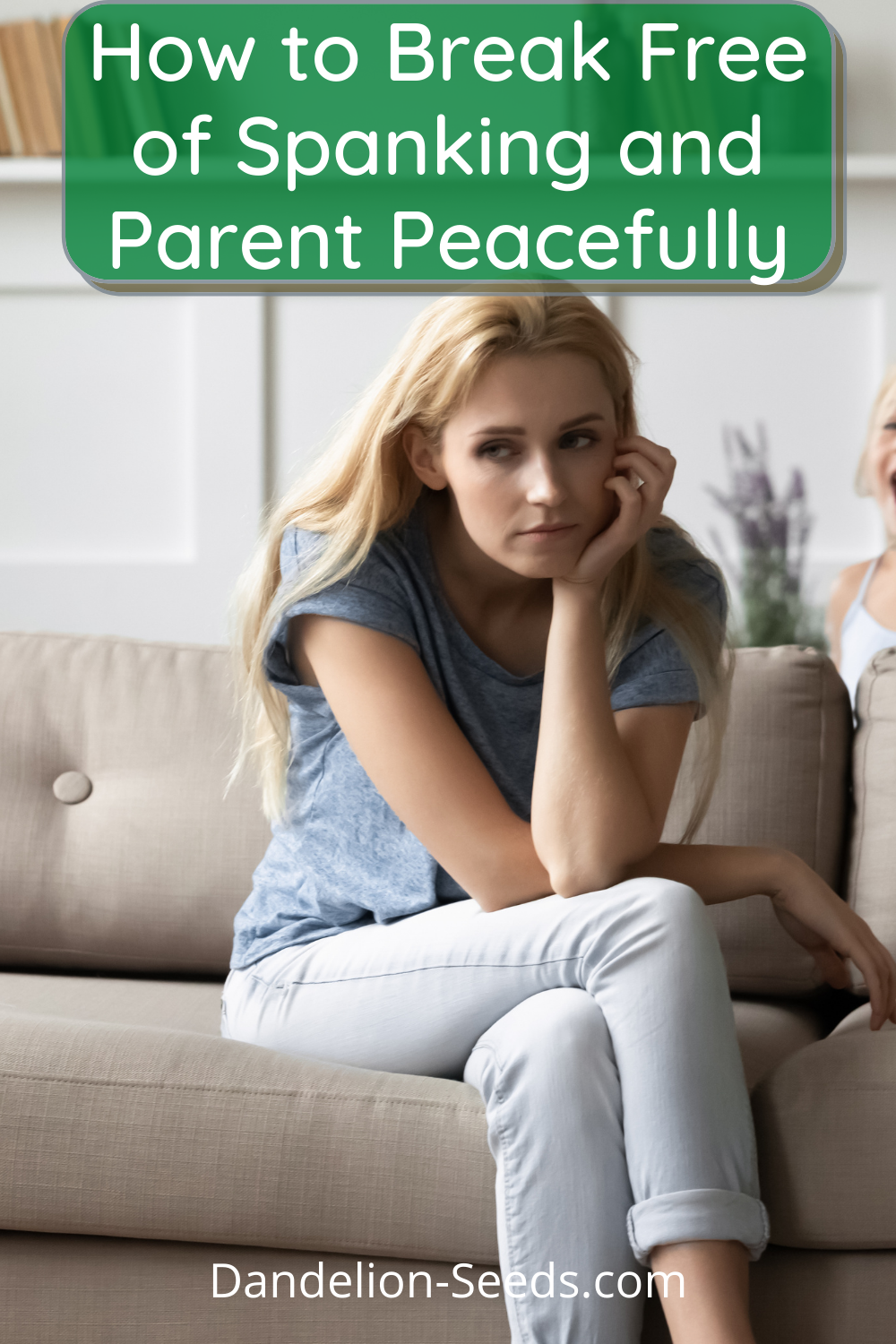
A growing body of research is showing us that spanking is an ineffective way to address behavior problems, both short-term and long-term. Furthermore, perhaps surprisingly to some, spanking may have some of the same outcomes as more severe forms of child abuse. A child's nervous system simply does not have a way to differentiate between spanking and other forms of violence. What kids know is that their trusted adult is hurting them.
According to a recent study by Harvard University,
"...corporal punishment has been linked to the development of mental health issues, anxiety, depression, behavioral problems, and substance use disorders." (source)
Further, the American Academy of Pediatrics states this about spanking:
"The Academy released a revised policy statement today that reiterates its opposition to corporal punishment, citing new evidence linking this form of discipline to an increased risk of negative behavioral, cognitive, psychosocial and emotional outcomes for children. The policy also addresses the harm associated with verbal punishment, such as shaming and humiliation. The AAP recommends that parents do not spank, hit, slap, threaten, insult, humiliate or shame to discipline their children. Research has shown that striking children, yelling at them or shaming can elevate stress hormones and lead to changes in the brain’s architecture. Harsh verbal abuse also is linked to mental health problems in preteens and adolescents." (source)
Perhaps of particular note about spanking is that it literally stunts some of the child's brain growth and can result in a lower IQ. Specifically, the part of the brain that is often damaged by corporal punishment is the very part that helps the child learn empathy for others (source). This very much plays into the vicious cycle of people who've been spanked as children continuing to rely on spanking for their own children. Lower empathy "grows" lower empathy.
If there's any encouraging news, it's that it's never too late to learn and increase empathy (source). The tricky part is that to do it, the adult has to very consciously and actively work on it. New neural pathways can grow to help the adult behave differently with their child. After enough practice, the new patterns can become habit (source). It won't happen on its own, however. The adult needs to work on it.
Additionally,
"...Evidence that spanking and adverse childhood experiences, or ACEs—which include measures of physical and emotional abuse, neglect, intimate partner violence, parental mental health problems, parental substance use, parental incarceration and parental death—have statistically indistinguishable effects on externalizing behavior problems in early childhood" (source)
Finally,
"In the meta-analysis, researchers Elizabeth Gershoff and Andrew Grogan-Kaylor of the University of Texas at Austin and the University of Michigan, respectively, evaluated 75 published studies on the relation between spanking by parents and various behavioral, emotional, cognitive and physical outcomes among their kids. They found that spanking was associated with 13 out of a total of 17 negative outcomes they assessed, including increased aggression, behavioral and mental health problems, and reduced cognitive ability and self-esteem." (source)
Spanking is currently still legal in every one of the United States, including in many schools. Most of the rest of the world has banned it, however, in the spirit of promoting gentler discipline methods. In fact, this map was updated in 2009 -- more than a decade ago. Spanking is even less tolerated now than it was then, with 59 countries now forbidding it by law. Japan is the most recent country to banish it, as of 2020 (source).
Perhaps the most important point to consider is that -- true, corporal punishment does inflict enough pain on a child that it may deter their behavior. However, nothing about spanking tells the child what they should do; how they should behave. Indeed, the parent might tell the child what to do, but living what to do is much more impactful.
The core of discipline is, indeed, teaching. What if we redirected the energy parents spend on spanking into gently guiding their children; teaching them how to thrive, connect, and collaborate peacefully with others? What if we model how to be gentle even amidst conflict? What if we show kids how to act towards others because they've seen us modeling it for them -- and they know what it feels like to receive their benevolent teaching?
Finally, what if we gave ourselves permission to break free from the patterns that no longer serve us?
Healing awaits.
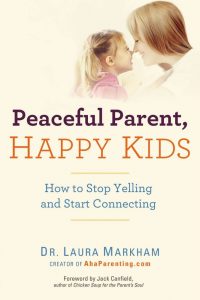
Additional resources can be found on the pinned post on Dandelion Seeds Positive Parenting's Facebook page.
Below is a partial transcript from Part 1 of my interview with Debbie Reber, author of Differently Wired (afflinks).
Watch the full interview here:
Hello. I am Sarah with Dandelion Seeds Positive Parenting and today I am so excited to talk to Debbie Reber, author of an amazing book for parenting in general, and specifically for differently wired kids.
This is the kind of book that makes me elbow my husband in the ribs and say, "You've got to hear this, you've got to hear this!"
We are both better for your work, Debbie, and I am so glad to have you here today.
Thank you so much! What a nice intro.
Let's dive right into the discussion of differently wired children. Let's talk specifically about getting to know the children that we have, not the children necessarily who we envisioned having long before we birthed or adopted them.
They don't always "look" exactly like what we envisioned they would. When parents learn their child is differently wired, how do they typically come to terms with the child who they actually have and are raising?
Is it intuition? Is it a diagnosis? How do we even come to know this child who we have?
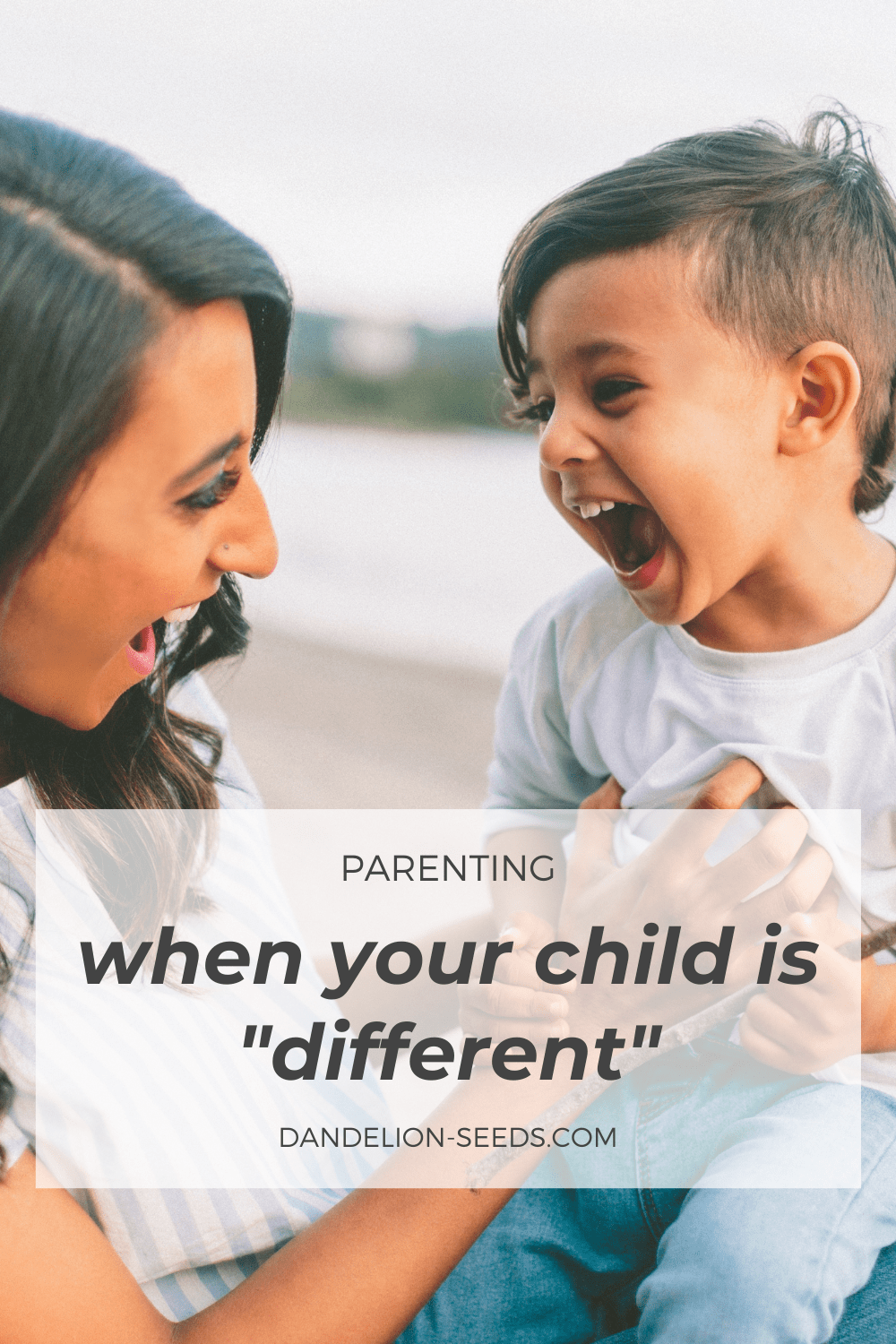
Well, it's a slow process for many of us. I describe it in the book like pulling off a Band-Aid® very, very, very slowly because a lot of kids fall under the "umbrella" of differently wired, as I use it, which is just being neurologically atypical in a variety of ways.
It isn't so obvious, and a lot of the differences are invisible.
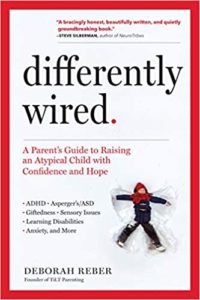
When they're younger, it may look like really intense behavior. A lot of us have kids who were colicky when they were little.
Just more intense -- the more kids like more energy, more movement, more emotions.
So we always kind of have a sense that, "Okay, this is a little more intense than I was envisioning and wasn't expecting it to be this hard." Perhaps those are thoughts that we might have.
And then over time, we start to gather more information, right?
We kind of intuitively may recognize something's going on, but we're also usually looking for evidence that everything's fine, which is always welcomed by us, right?
When we have little ones, we want someone to say, "You know, this is all kind of developmentally normal."
So, often, it's just piecing together information -- feedback from preschool and other teachers, which many of us start getting more and more of us are kids get older. And observations from other people.
And then we start asking questions. Eventually, many of us will go in for an assessment with an OT or with someone to start piecing together the information. But it's a slow process. And there's a lot of self-doubt, I think, that happens for parents as we're trying to determine, you know, is something going on or isn't it? Is this just in my head? - Debbie Reber, author of Differently Wired
[We wonder] are we being overprotective? Are we being helicopter parents? Are we paranoid? What's really going on?
Yeah, absolutely. And I love how you say that other people offer some of the insight that sometimes we're seeking.
We want to know, "Is our kid okay?" We want to know, "Are we okay?"
I know in my experience, I might have felt that something was different. This wasn't necessarily what I envisioned parenting would be, but it wasn't until another parent would come to me and say, "Oh -- is your daughter (and then she'd fill in the blank)."
I'd never even heard that term before. Let me look that up. And lo and behold, "Hey, that resonates. That makes sense to me. I think we have something to explore here." [Or no, that's not on target and I can release it.]
Yeah. I would say that most of my friends would often normalize what we were experiencing. It was very well-intentioned -- "You know, well, my child does this, too" or "This happened to us," and as a way to make me feel better, but that was more confusing to me.
And it was a friend, ultimately, I think when my son was four, when I was trying to explain some of the intensities and challenges we were having, she was the one who said, "Oh! That sounds like a sensory processing issue. You should read this book..."
That's when the light bulb went off for me for the first time. I was like, "Oh, there could be a reason for all of this," beyond just my husband and I not nailing it as parents. - Debbie Reber, author of Differently Wired
Yeah, absolutely -- because of course you were doing the best you could with the information you had.
Let's talk a little about our frame of reference.
Most of us grew up naively thinking that everybody was more or less 10 percent within the same range, neurologically speaking. Is it that we are simply more aware of neurological differences at this point or have children always been differently wired, and we just kind of said, "Oh, that child is just a busy child" or whatever.
How have the labels changed? How is the understanding changed over time?
I think the understanding has changed a lot. In raising my son and doing the research for this book, I reflected so often on kids that I went to school with back in the 70s and the 80s.
I was like, "Oh, oh my gosh, that's what was happening with this kid, and with this kid," and I I started realizing, you know, just kind of piecing it together. These kids who, back then, even something like dyslexia was not really talked about her understood.
And so it was really grouped on intelligence or the weirdos or you know, like we just had these kind of broad labels: the bad kids.
The kids who had no emotional regulation were just bad kids and they got punished or they dropped out of school. They went down that road.
And that really breaks my heart when I think about that and recognize, "Oh my gosh. So many of these kids had ADHD, or were on the autism spectrum, or had these other differences."
And so I think we're so much more attuned to it now.
Even from when my child was in early elementary to now -- he's 16 -- I feel like we're still evolving as a society and there's just more and more awareness, but it's been a long time coming.
Yeah, without a doubt, I had the same reaction you did when I think about the kids who I grew up with, also in the 70s and 80s.
It really takes me to a place of compassion and empathy and my strong mama heart wants to go and hug all of these little versions of these now adults, and say, "Now I understand. You weren't trying to be difficult or whatever label you may have had. We just didn't understand you. And as your classmate, I'm sorry I didn't know that about you because I would have loved to show up for you better."
Yeah, and so many adults are discovering their own neurodivergence through raising their child.
I actually did a couple podcast episodes on this where I interviewed adults who had realized they were on the spectrum or had ADHD in their 40s.
What does that do? There's a sense of relief. There's also a sense of sadness, right? And all those pieces fitting together and then realizing, "Oh my gosh. This little person that I was for all these years, and my needs were not being met, and this is how I internalized it. It's really challenging for a lot of people to reconcile.
It is. You know, and at the same time, to your point, a lot of these adults get to rewrite part of their stories. If an adult grew up thinking, "I'm just a tricky personality." "I'm just hard to love." "I'm just hard to be around." "I'm disruptive" -- all of the lies that they were fed as kids -- now they can say, "I did the best I could with the wiring that I had -- and look at all of the ways that I did learn to cope and to regulate and to exist in a world that wasn't necessarily built for me. Look what a superpower that was to get where I am today."
And I love how you had it from a place of empowerment rather
than a place of, you know, self-punishment or any of the negative things that parents could be doing. Now they're saying, "Hey, I've got this too, and now I understand all the better what my child might need."
Debbie: Yeah, a hundred percent. For me it explains the class clown label that I was given in the senior poll. "Best excuse maker." So that gives you a little sense of who I was in school.
Sarah: Awful, awful labels. Yeah, I was "most reserved" and I hated that one. This doesn't define us anymore, does it.
Debbie: Absolutely not. No. I'm still a bit goofy, but I'm definitely not a class clown anymore.
Sarah: Right there on the goofiness with you. That is an important element of success in today's society.
Debbie: [laughter] Yes. True.
One thing that I love so much about your book is that you don't limit "differently wired" to one specific medical diagnosis. You talk about a broad range of things -- ADHD, Asperger's, ASD, giftedness, sensory issues, learning disabilities, anxiety, twice exceptional, highly sensitive children, and various combinations thereof -- and that's not even a full list.
This is not a single, "Ooh, I can point right here and say that's what it is" and build our life around that. Many times these things coexist together.
So for the parent who is getting, be it a single diagnosis or some combination of these things, how does the parent keep from getting totally overwhelmed?
And what does the parent do with this information once they have it?
I think labels are so tricky and I certainly talk a lot about them. I've thought a lot about them.
Labels can be super helpful as we're getting information because it can give a context for things that are happening with their child. It can open up the door to services or accommodations or other types of support that we need for our kids, especially, you know, legally, depending on what the diagnosis is, but they don't actually solve anything.
I used to really want the label because I wanted an answer, right? I wanted to know this is what it is and I wanted the answer so I knew exactly what to do to fix it.

And I think that's what so many of us, especially when we're earlier on in this journey, we want an answer to explain what is challenging in our lives and ultimately, a label -- well, I can give you some insight into a course of support or areas to prioritize your support on.
But [a label] doesn't change who your child is and isn't -- there's no playbook, like, 'Do this, this, and this and that will fix or solve for all of these symptoms.' - Debbie Reber, author of Differently Wired
So I think that they're tricky. In Venn diagrams of differences, you'd see so much overlapping between, you know, profoundly gifted, ADHD, and autism spectrum, for example. Sometimes they could fit into any of those buckets.
What I like about the term "differently wired" -- it's not a medical term, obviously, but it's a positive term that parents can embrace and hopefully reframe what could be seen as a negative or a deficit or a problem that needs to be solved. Instead, it's about an understanding that my child's brain isn't considered neurotypical; and my child is a unique thinker; my child's brain wiring is is outside the box and that's okay. - Debbie Reber, author of Differently Wired
It's a difference.
And so I really love that language as a way not just to feel more positive and optimistic. But also, when we are honed in on this one little diagnosis, we're very narrow in our vision. I feel like societally, that keeps us marginalized because we're all in our own little buckets.
And so we can talk about well, it's not that many kids who are dealing with this, or it's only this percentage of the population has this issue so it keeps them all "problems."
But when we expand and more inclusive and say actually there are so many people whose brains are not considered "normal," we have to accommodate for that.
We have to take a step back and look at what are we really doing in terms of how we're educating kids.
We're educating to a majority that probably isn't even a majority. I think that differently wired kids make up more than 50% of the population if I were to put money on it.
I agree wholeheartedly and I love how you reframe the labels. So much of our ability to come to terms with who our child is, is to look at them in a positive light, you know?
I often talk with my clients about reframing a tantrum as an emotional release. It's the same thing, but it really feels different if we look at it as this is a healthy expression of emotions.
The same is true for what you said. If you have a child whose brain simply differently wired, that doesn't make them less worthy of love, compassion, all of the gifts that we have to offer as parents -- and also as a society.
[And I agree that the numbers of differently wired kids are much higher than what's typically stated.]
Related expert interviews: The Explosive Child, Highly Sensitive Children, Childhood Anxiety
You also said another word that I want to go back and highlight for a minute. You talked about our desire to "fix" our differently wired kids. This reframing really helps us reframe the need to fix our kids, too, doesn't it?
Yeah, because fixing implies that there is a problem or that there's something broken. And that is because we are holding up our kids to a neurotypical standard. We're suggesting that there is one way of "being" that is acceptable and normal and okay and everything else...well, and in order to to fit into this "normal" bucket, all of these issues have to be fixed or addressed.
That does such a disservice to so many people. Again the 'normal' side of people -- there's nothing 'normal' about it.
The mental health problems [people have] and the ways that people compensate to get by in society -- and those who struggle with so many things like executive function and paying their bills and being organized and running a household -- all of those things -- everyone's making it up as we go along right? There's no one gold standard. - Debbie Reber, author of Differently Wired
And so this divide, and thinking that these other people aren't somehow broken, it just really does such a disservice. It implies that they're not okay in who they inherently are. To give a child that message is just heartbreaking to me.
It is. And it doesn't have to be that way. We can reframe it, and it is on us as the parent to say, "I'm going to change the narrative, not only for my child but also in the narrative that my child shares with those around them as they grow up, too." That's so important.
Let's talk a little bit about fear. One of the most common themes that I hear from parents is fear.
Suddenly, they're raising a differently wired child who may not feel at all

familiar to them -- or perhaps feels very familiar to them. Either way, it's a little bit scary sometimes as a parent, wondering how we can best support our child.
How can parents move from a place of fear to a place of trust and growth in parenting their differently wired child?
I think that it's really important to to know that fear is part of the human experience. It's part of our inner self trying to protect us and keep us safe.
We don't want to make fear [of raising a differently wired child] to be a bad thing. We want to have a relationship with it. We want to see it for what it is. - Debbie Reber, author of Differently Wired
I encourage parents to get really open and honest with themselves about investigating what things they're really worried about. What are their biggest fears?
They're often about this unknown future. Because the path is very unclear and not laid out before us, and the way that we assume everyone [else is] raising a neurotypical kid.
Related guest post: One Mother's Journey of Raising an Atypical Child
And so yeah, when we're kind of spiraling out of fear about future unknowns and all of those things, and "Can I do this?" and "This is going to be hard" and all the things that we do -- yeah, we run into problems. And we're not parenting from from a place that would really most benefit our kids.
Understanding what those fears are, questioning those fears, and choosing love, you know, I talked about choosing love and possibility.
I love that quote by Neale Donald Walsch: "All human actions are motivated at their deepest level by two emotions--fear or love."
When we start to understand what making a choice from fear feels like in our bodies, like usually know we're doing it. Our gut my may be saying, "This is the wrong move, Debbie" but in my head, I'm like, "But X, Y and Z."
So we're living in our heads and not our bodies.
So, if we can start to tune in more with our bodies and and parent from that place; make choices from that place, we will start getting feedback that that was the right choice to make. It'll feel lighter. - Debbie Reber, author of Differently Wired
It feels scary. I'm not going to say it's not scary, but it'll it'll feel like a lighter choice or we'll start to get feedback that the results are, "Oh, that was the right decision to make." And it's kind of like a muscle that that we're building.
I think, again, we have to uncover the fears of raising a differently wired child and acknowledge their existence; make some sort of uneasy alliance with it and then keep pushing ourselves to choose love and possibility instead.
See more from Debbie Reber, author of Differently Wired: